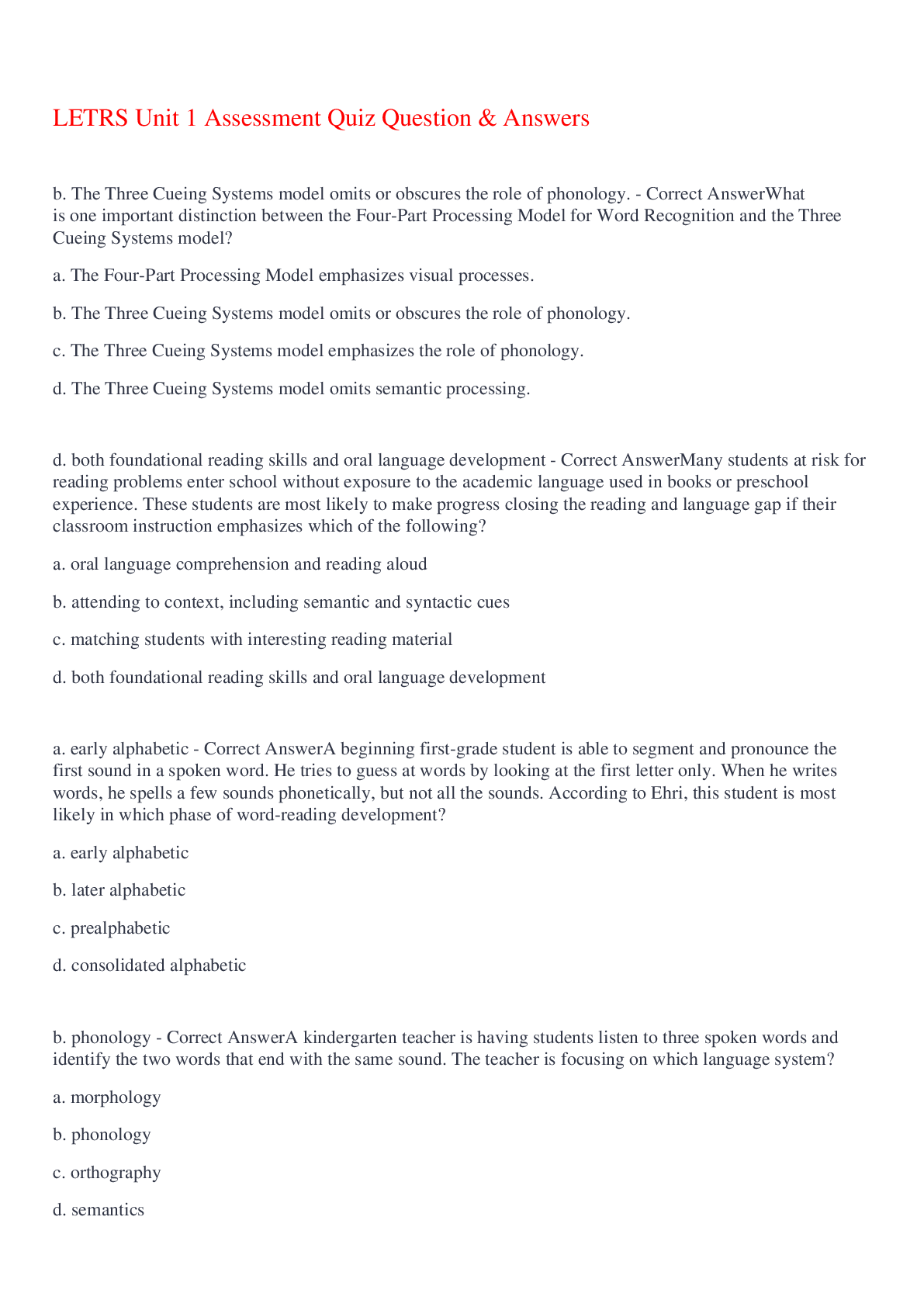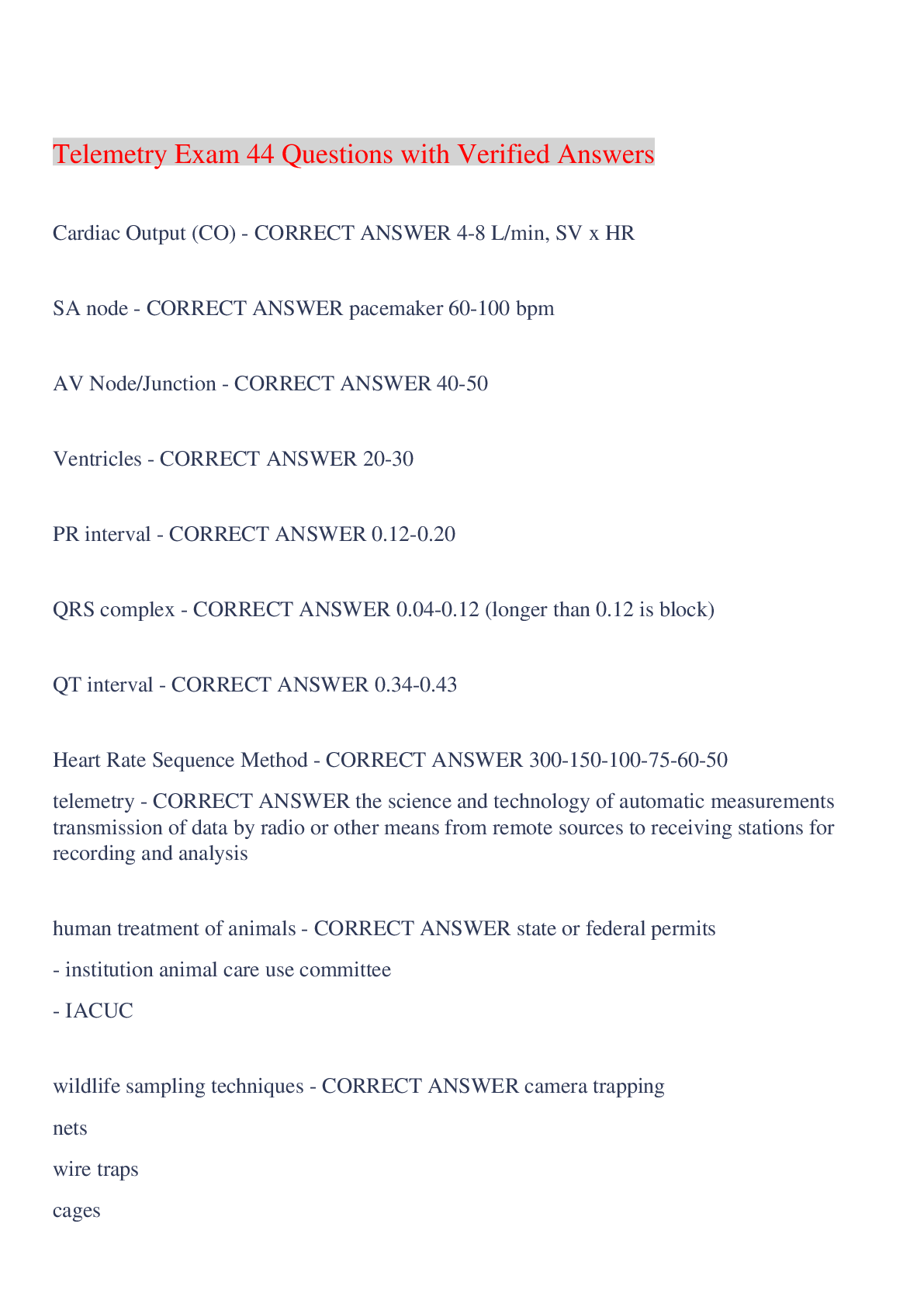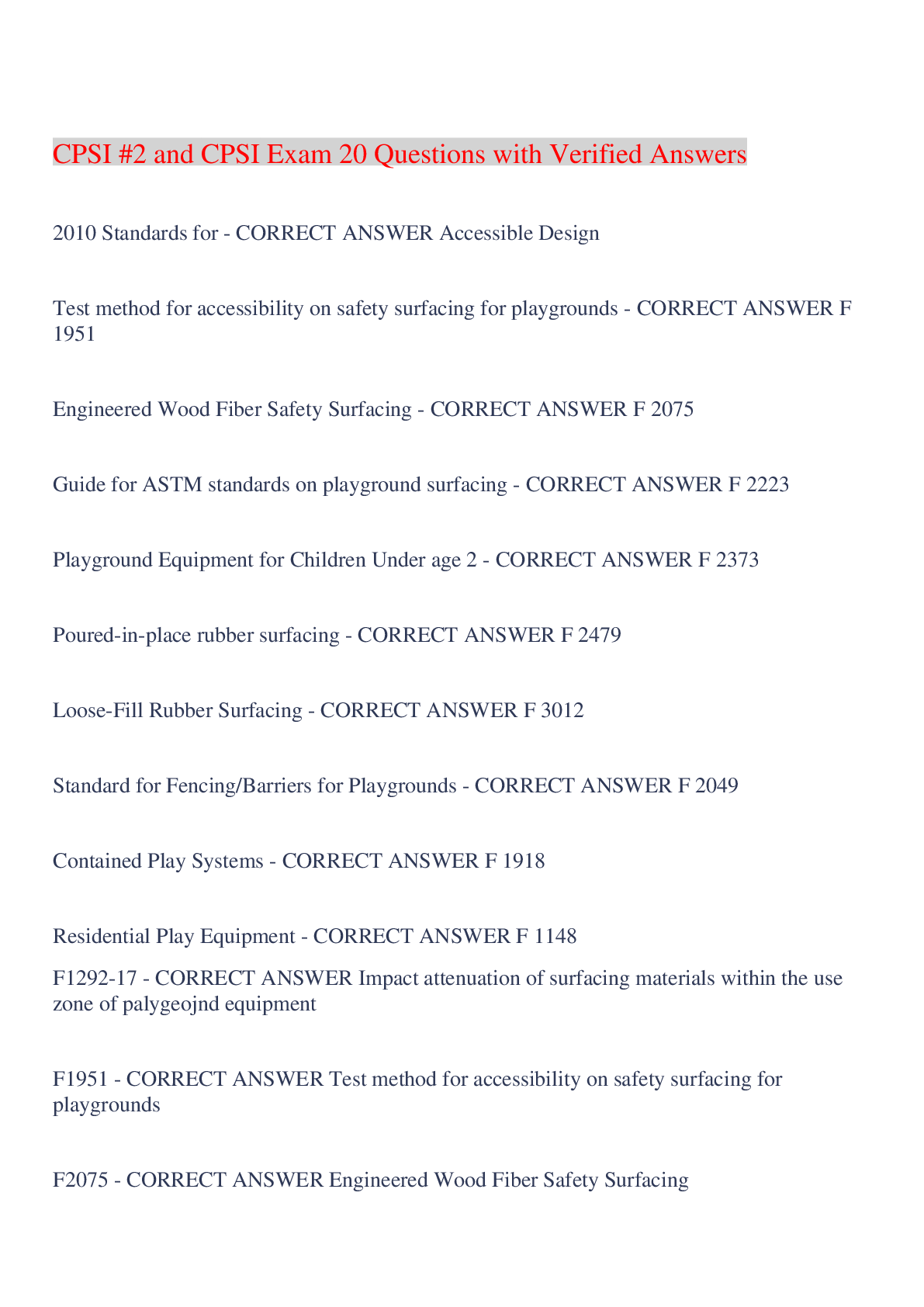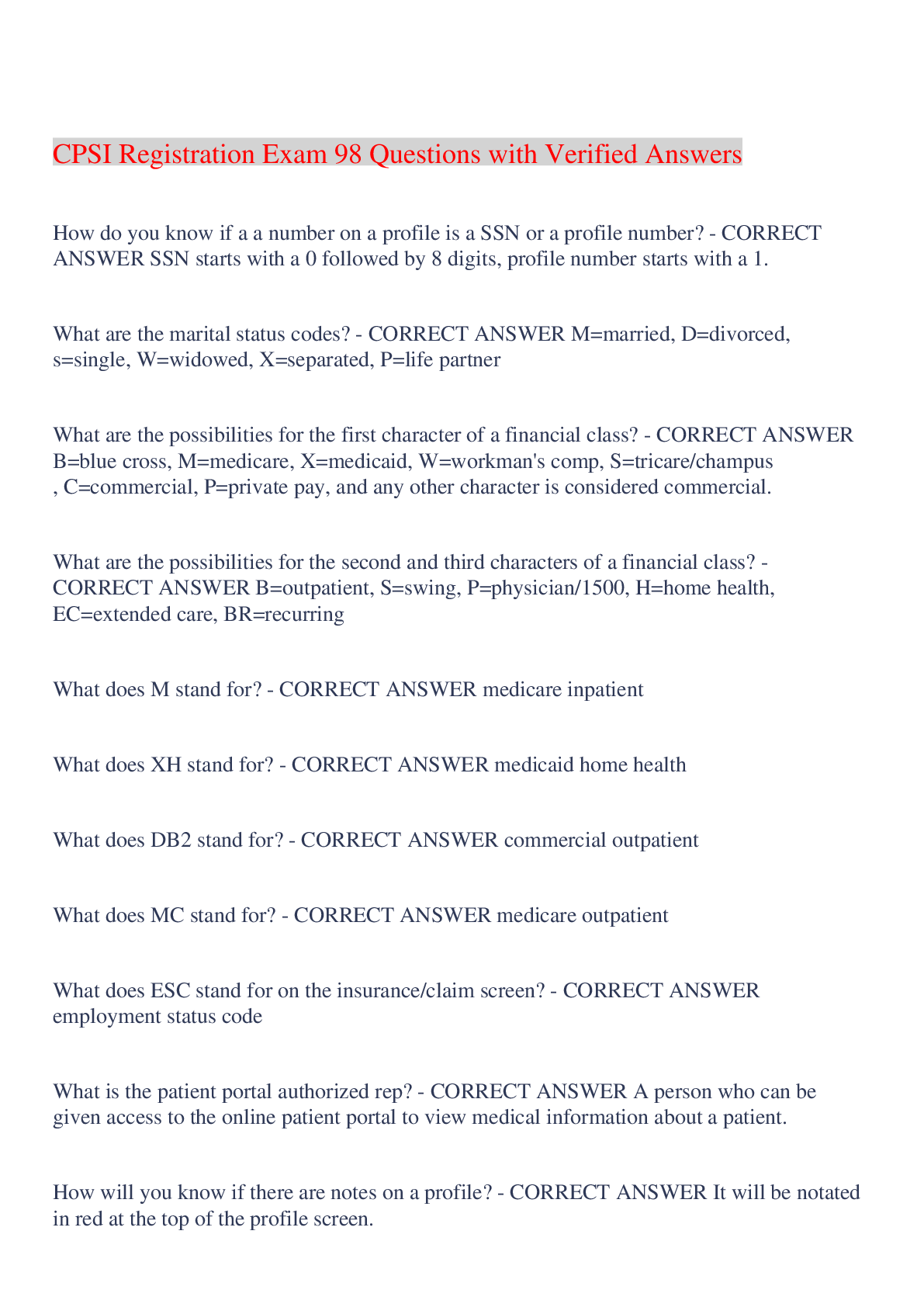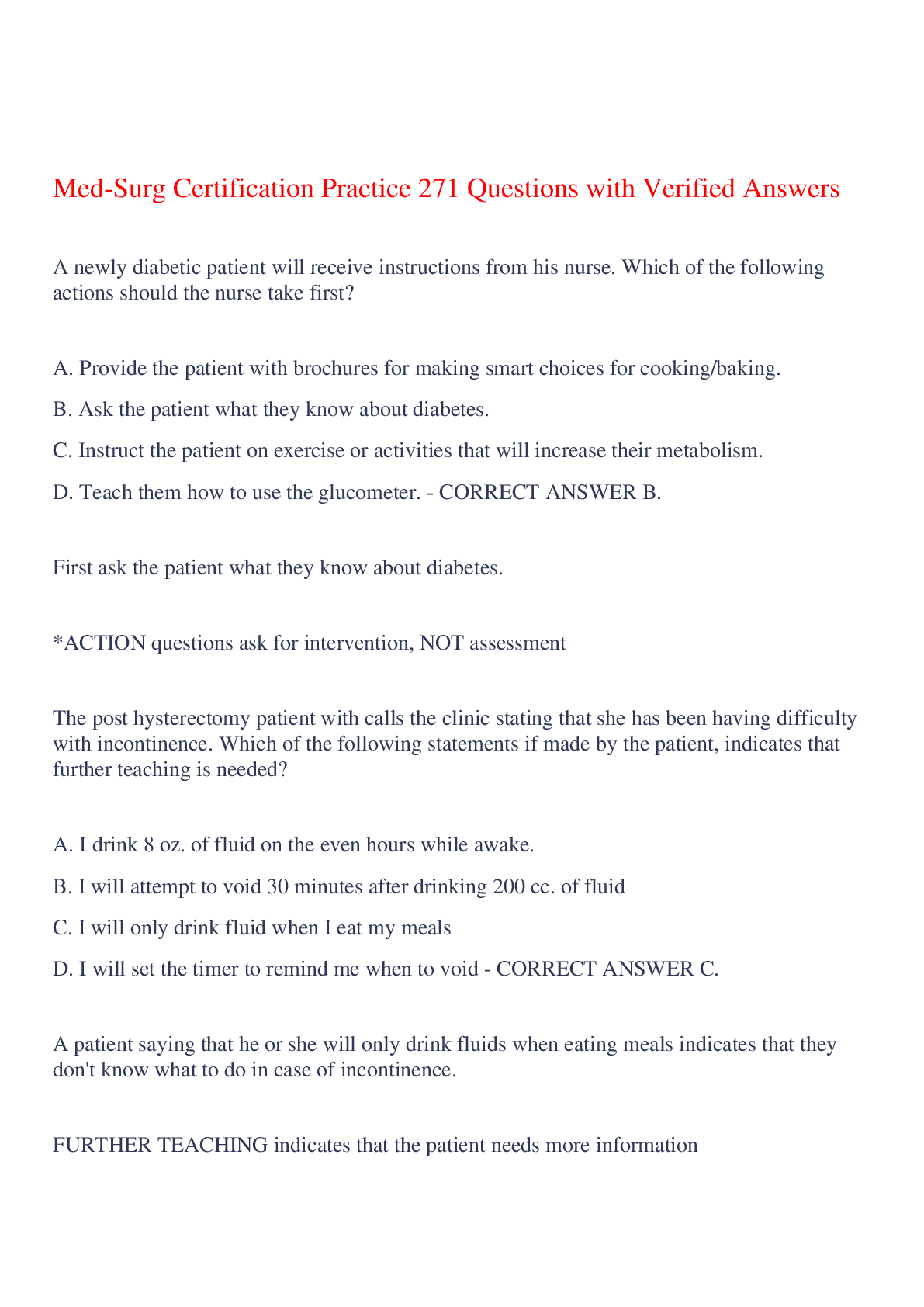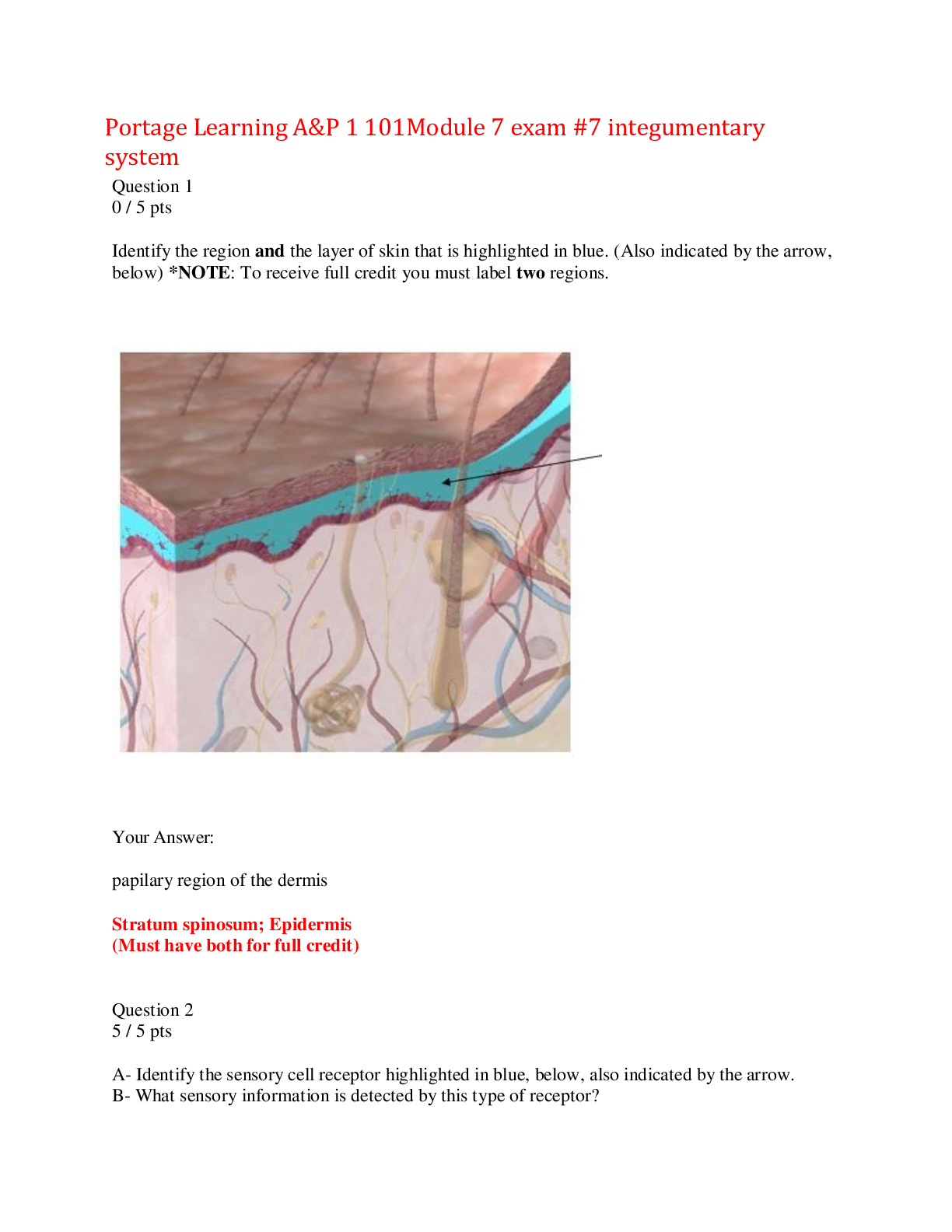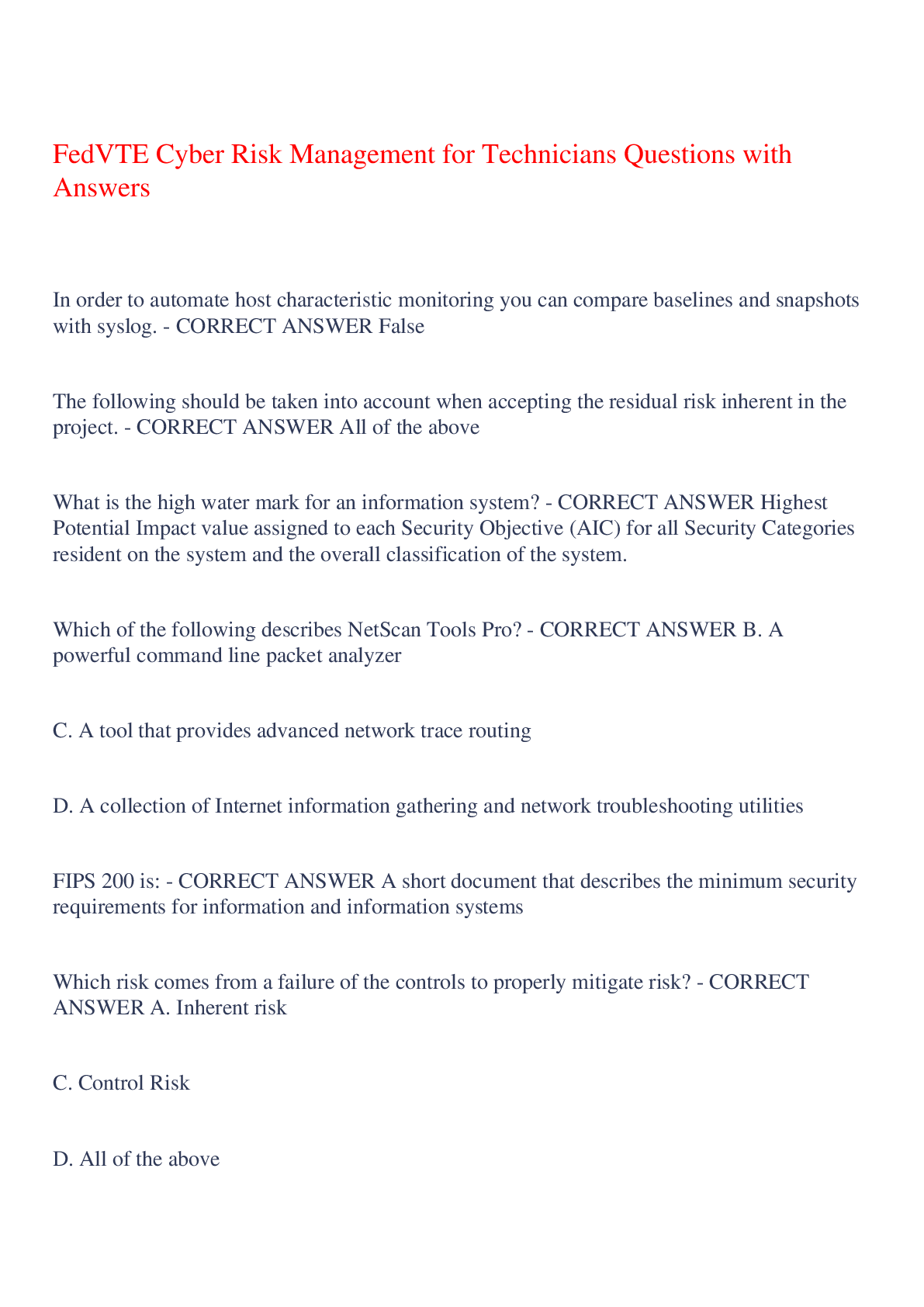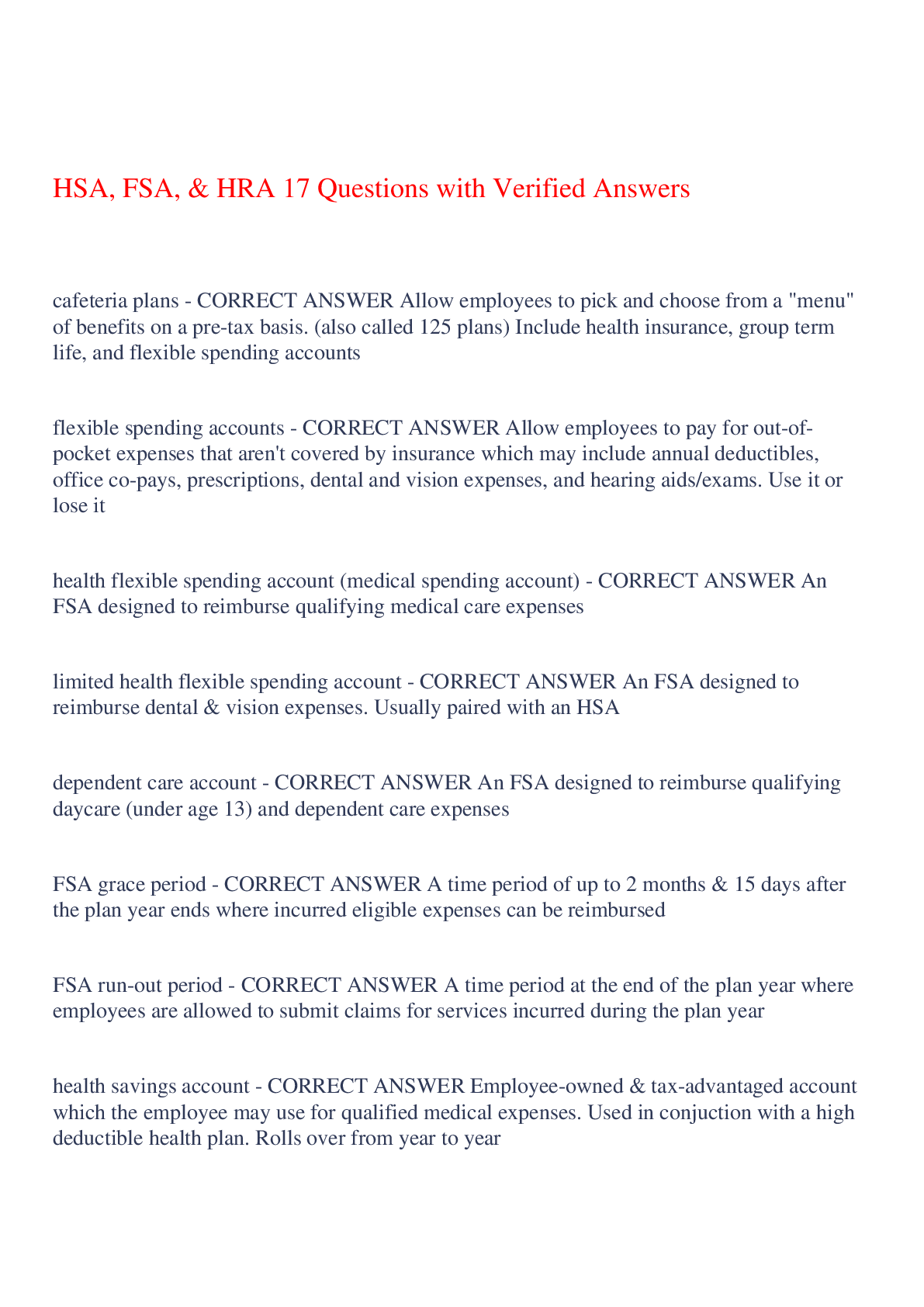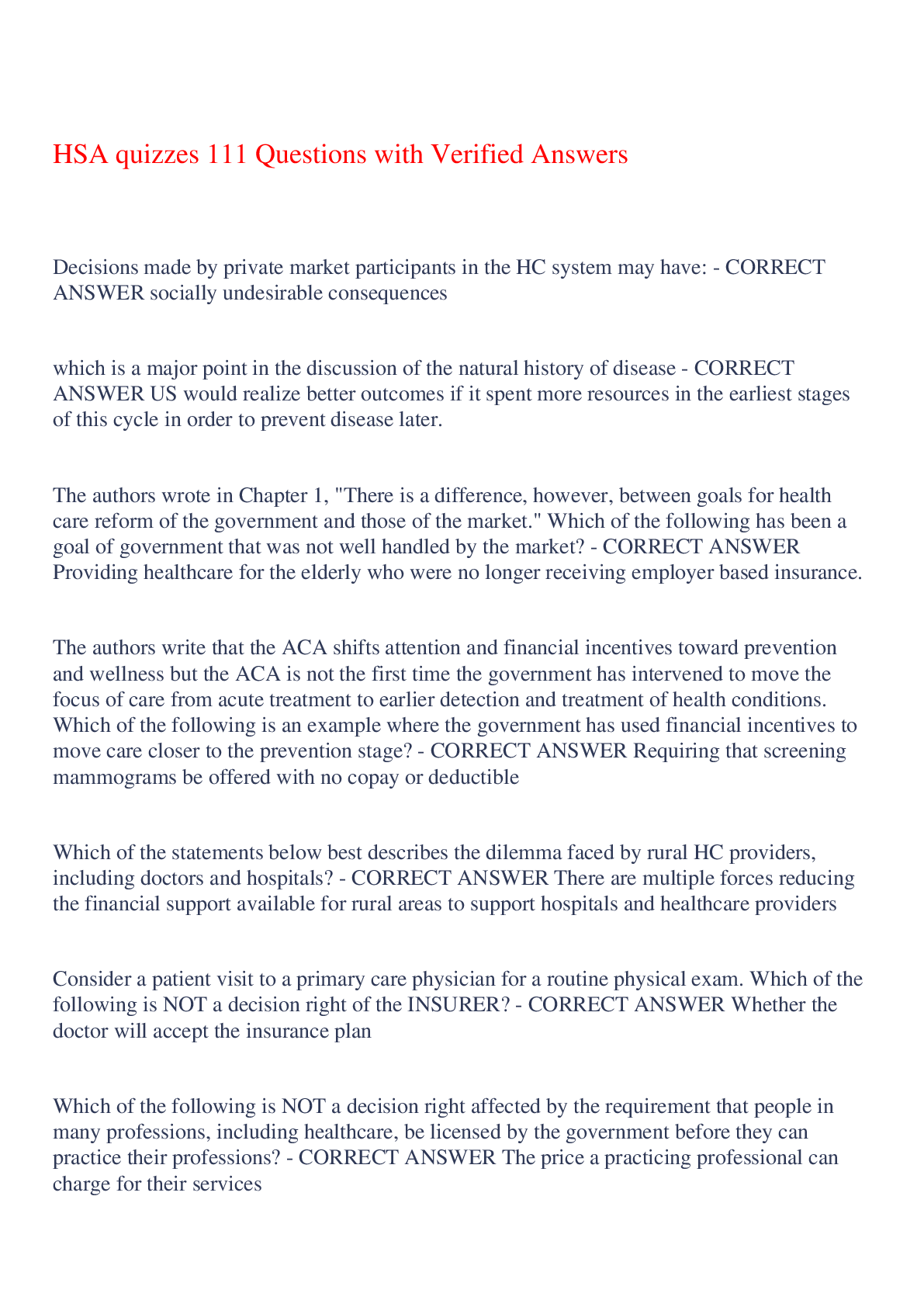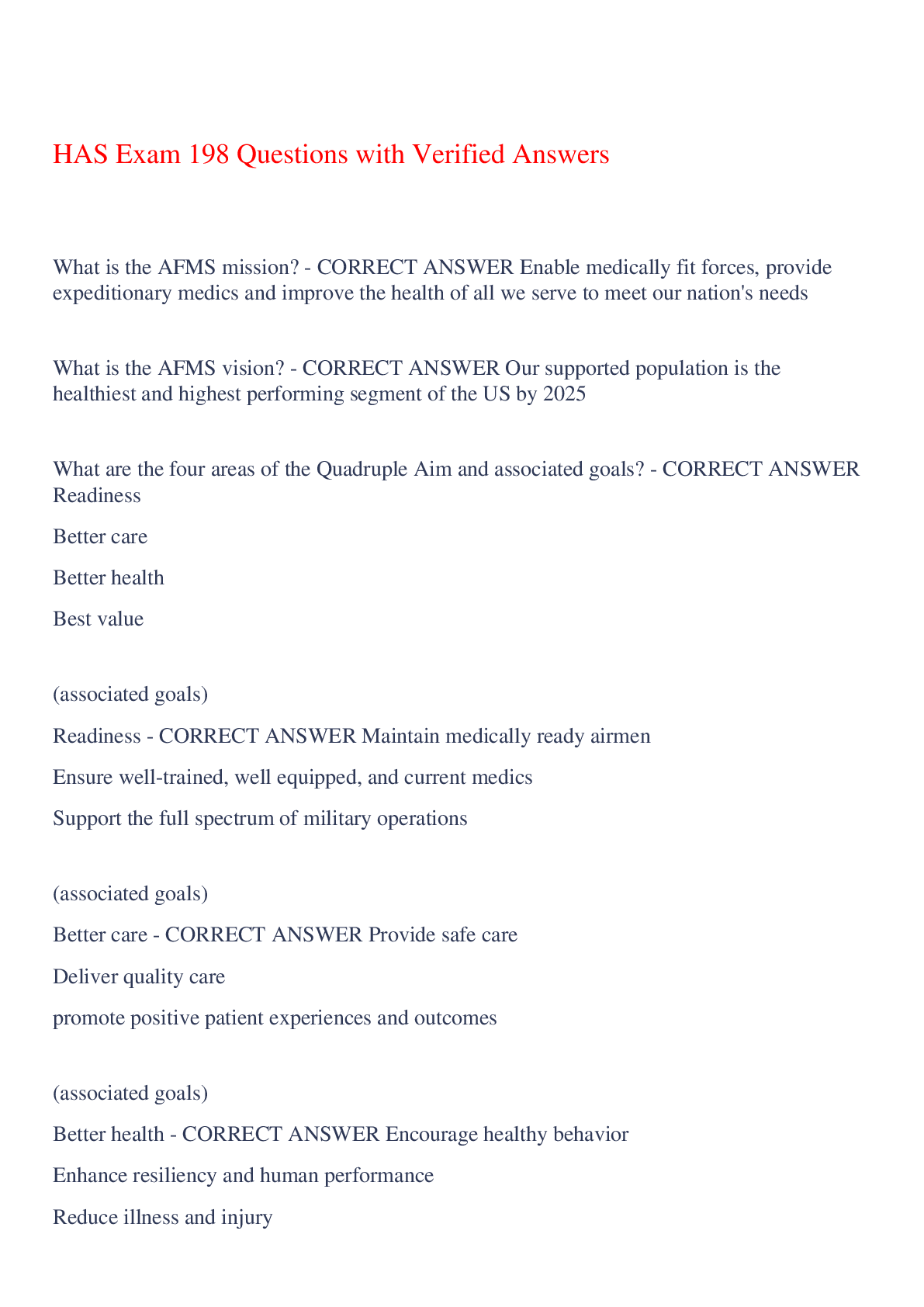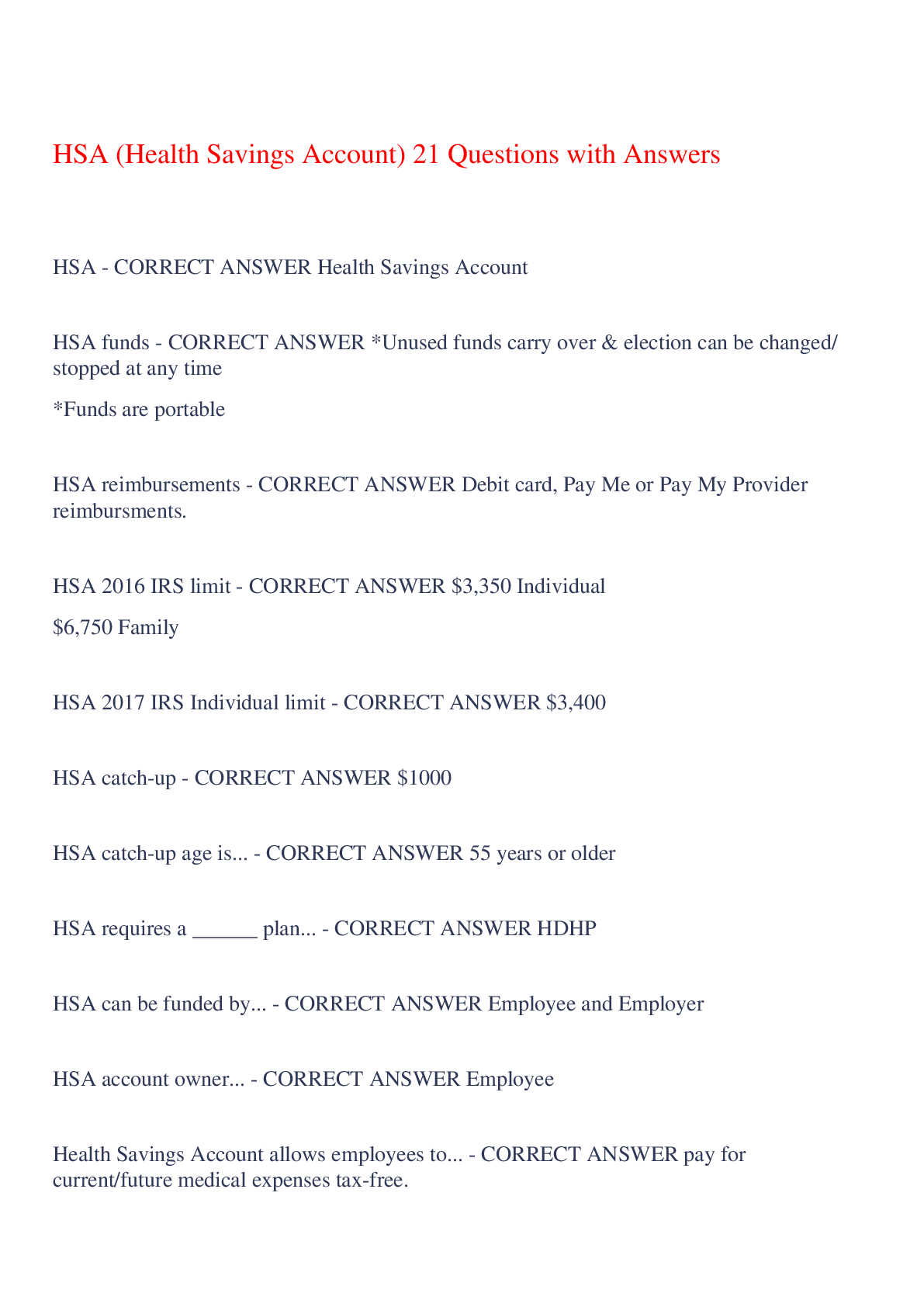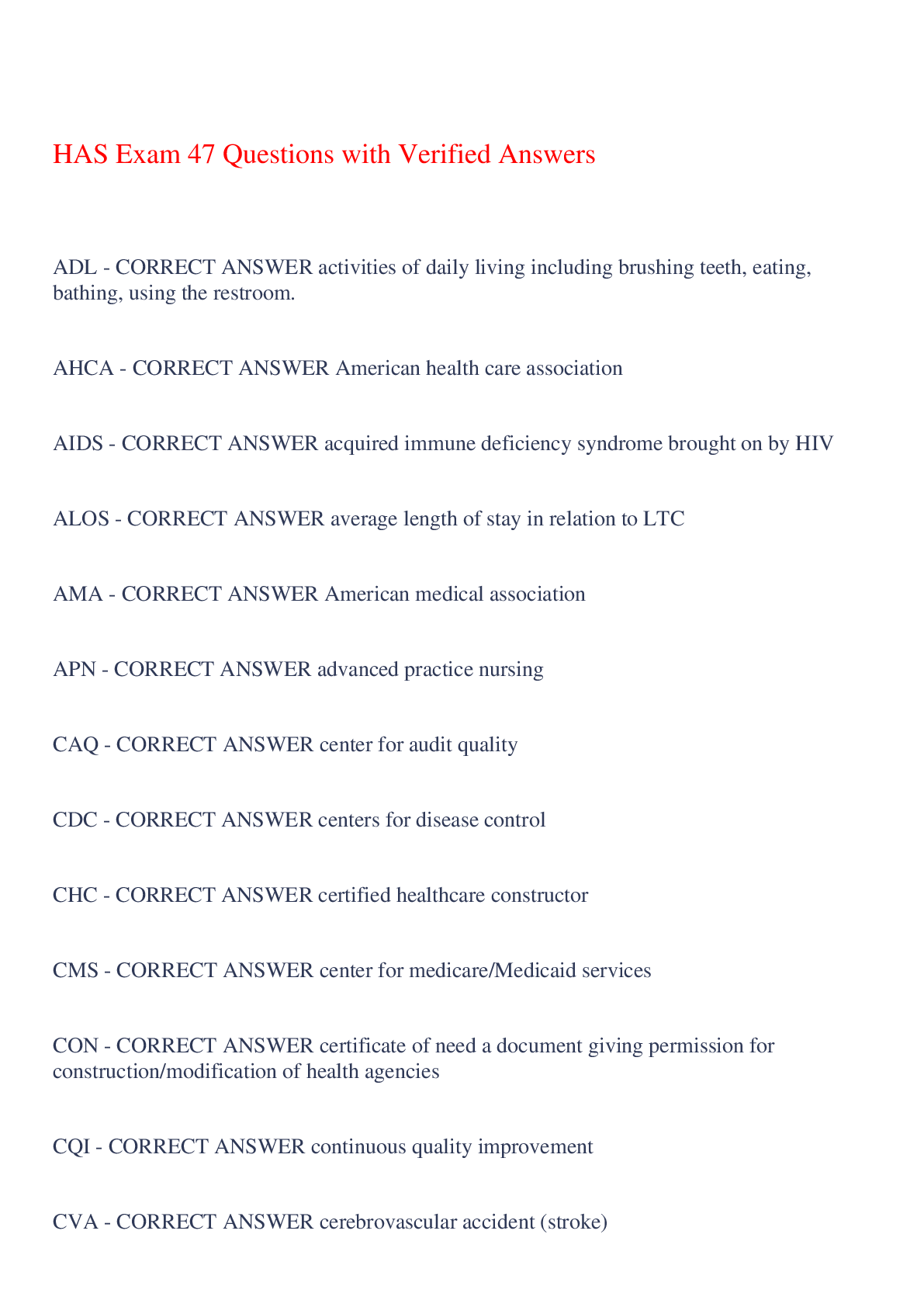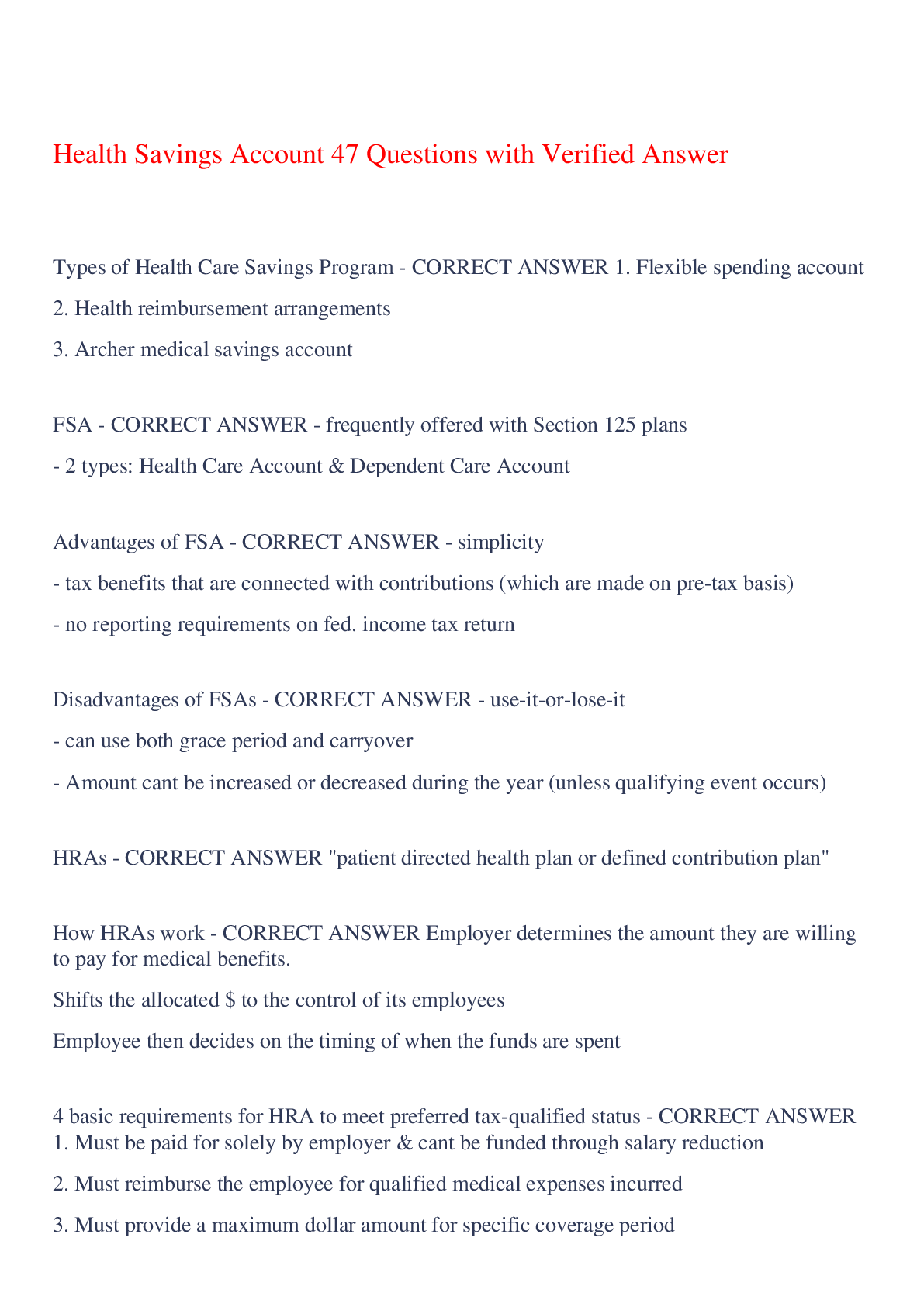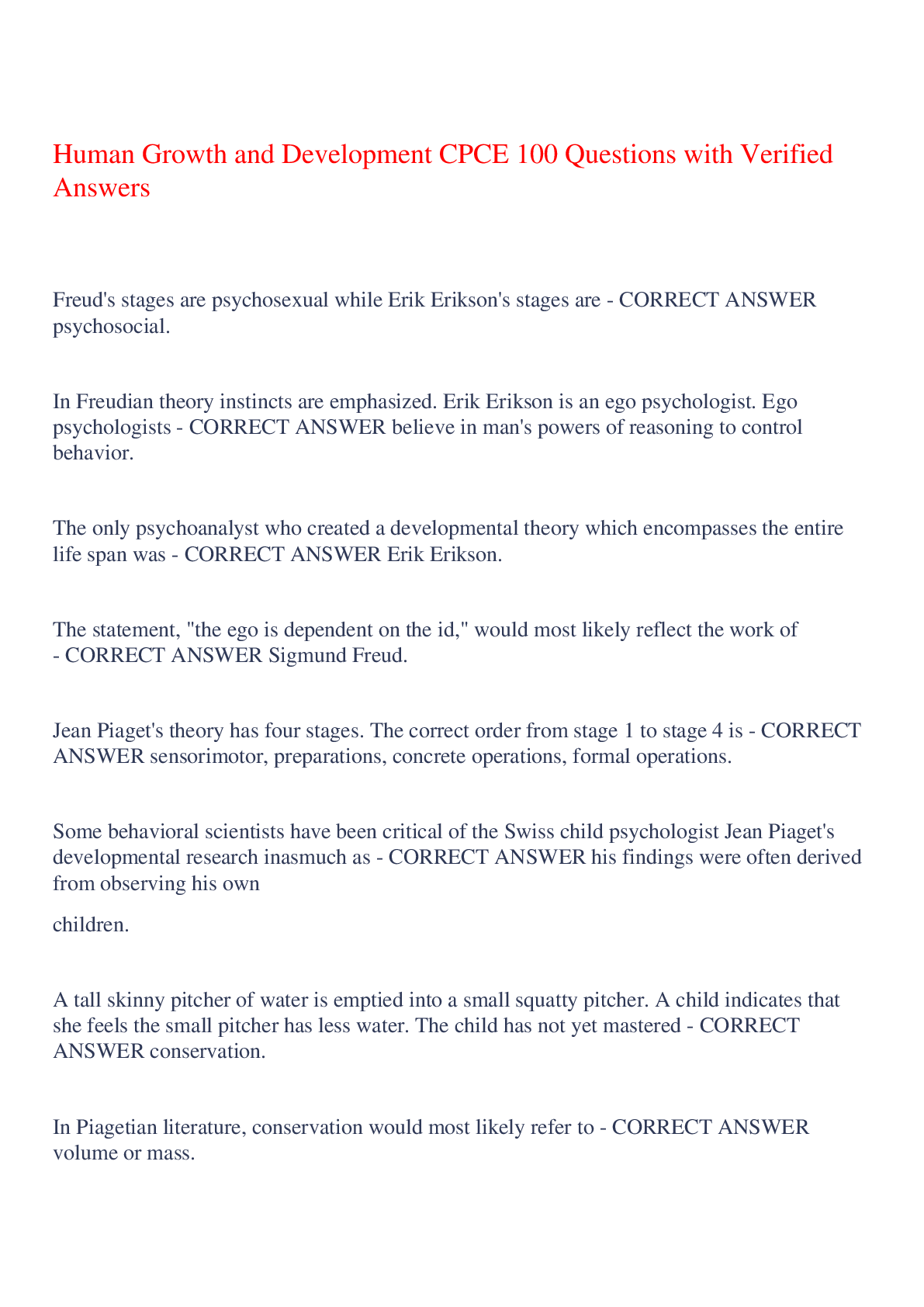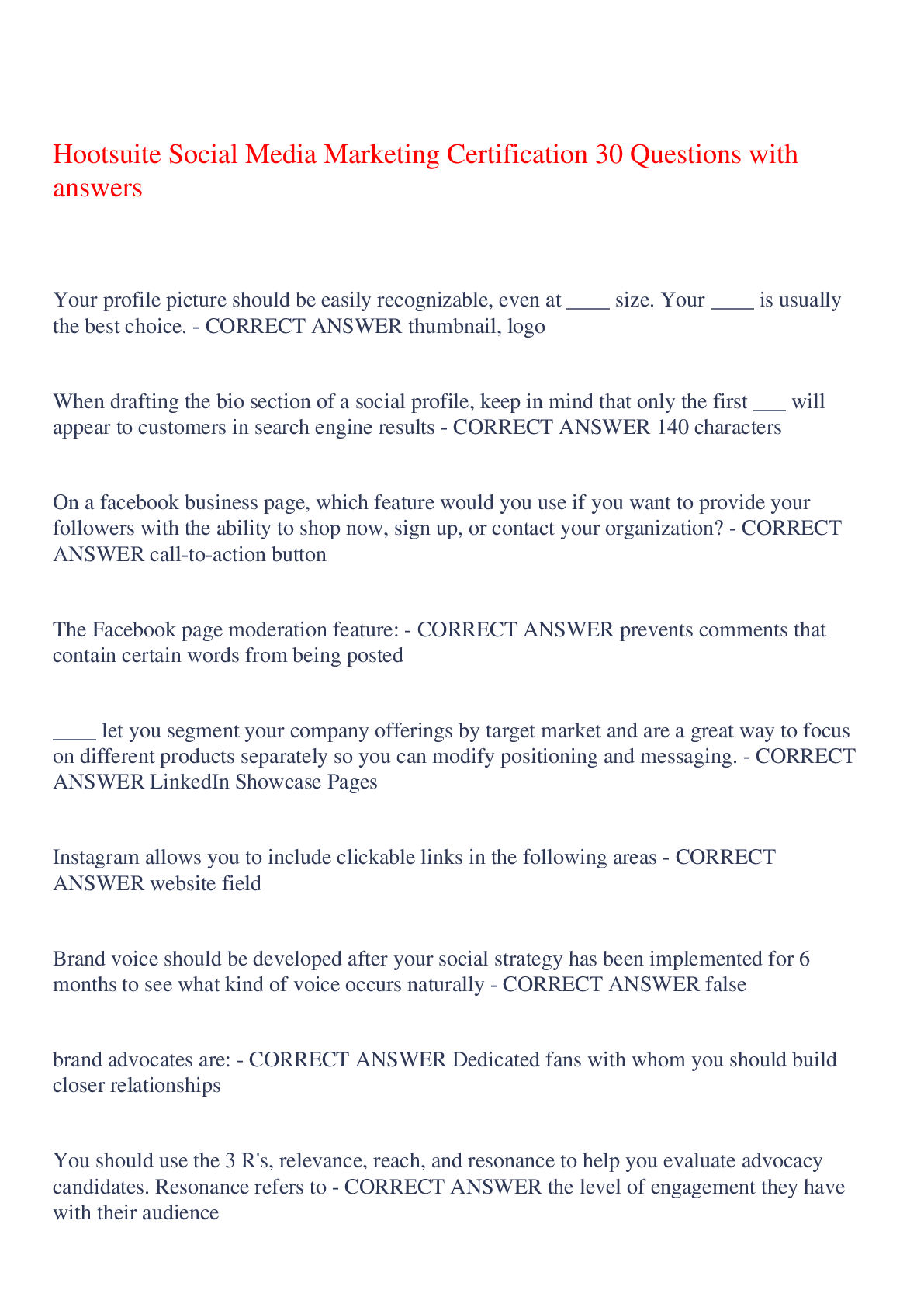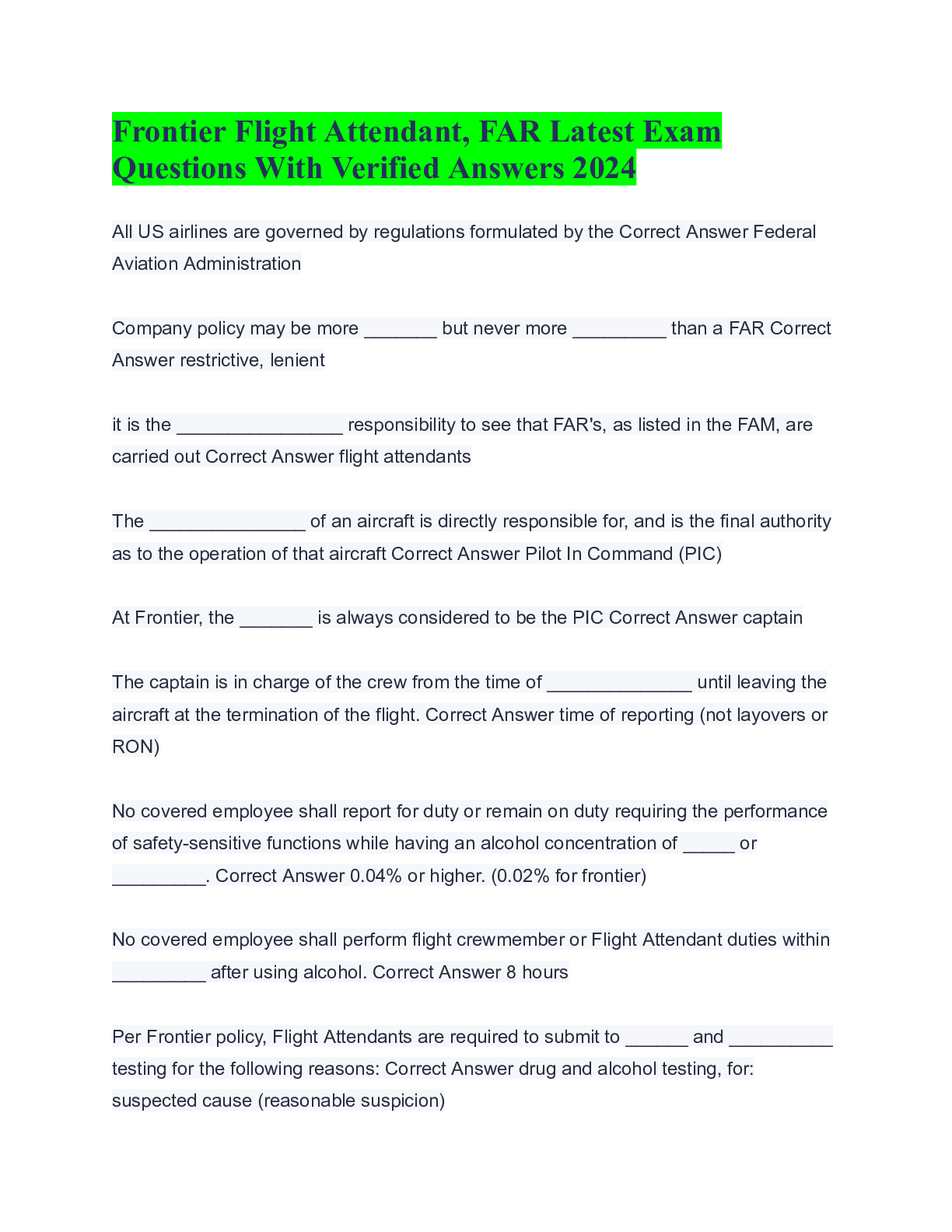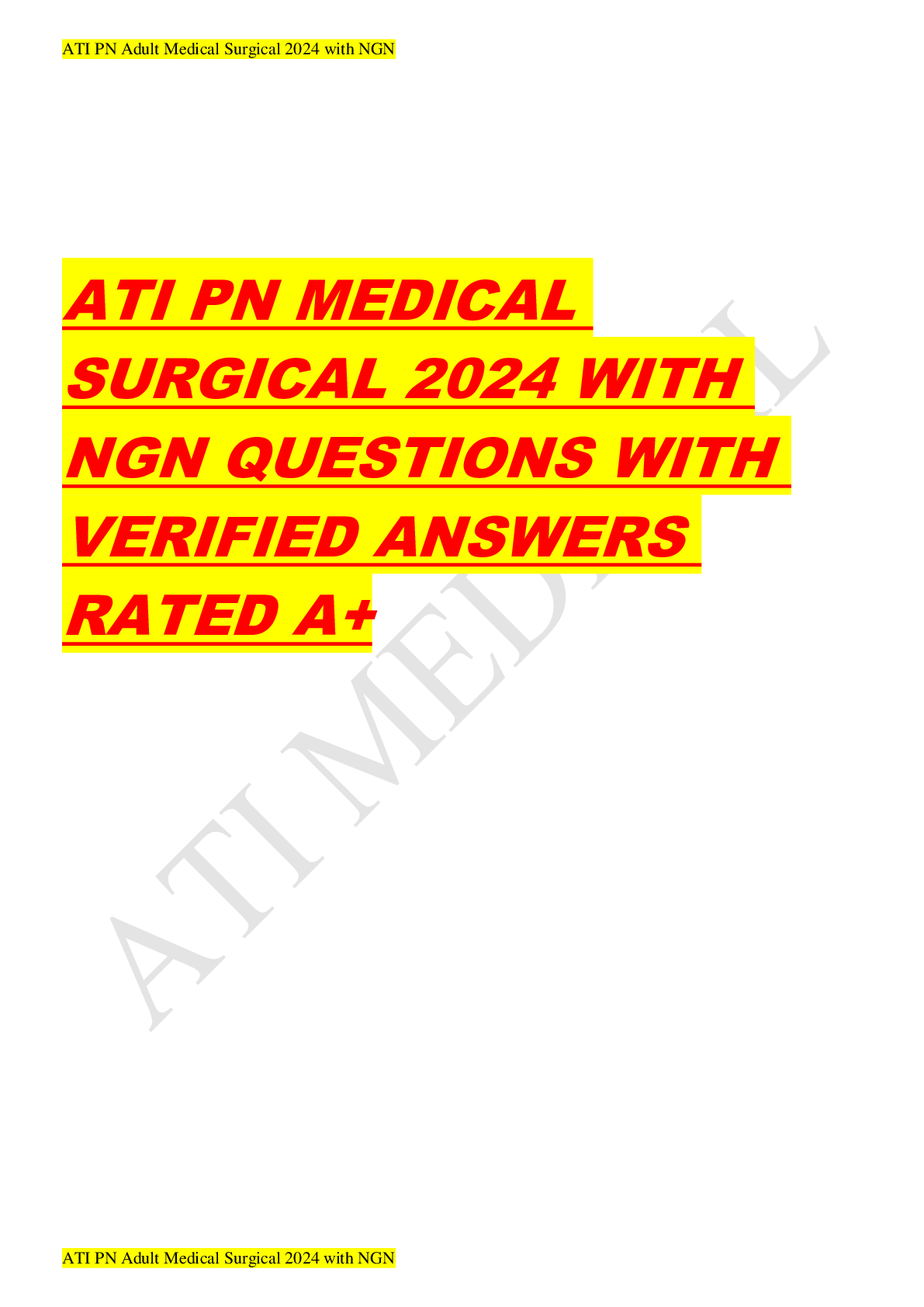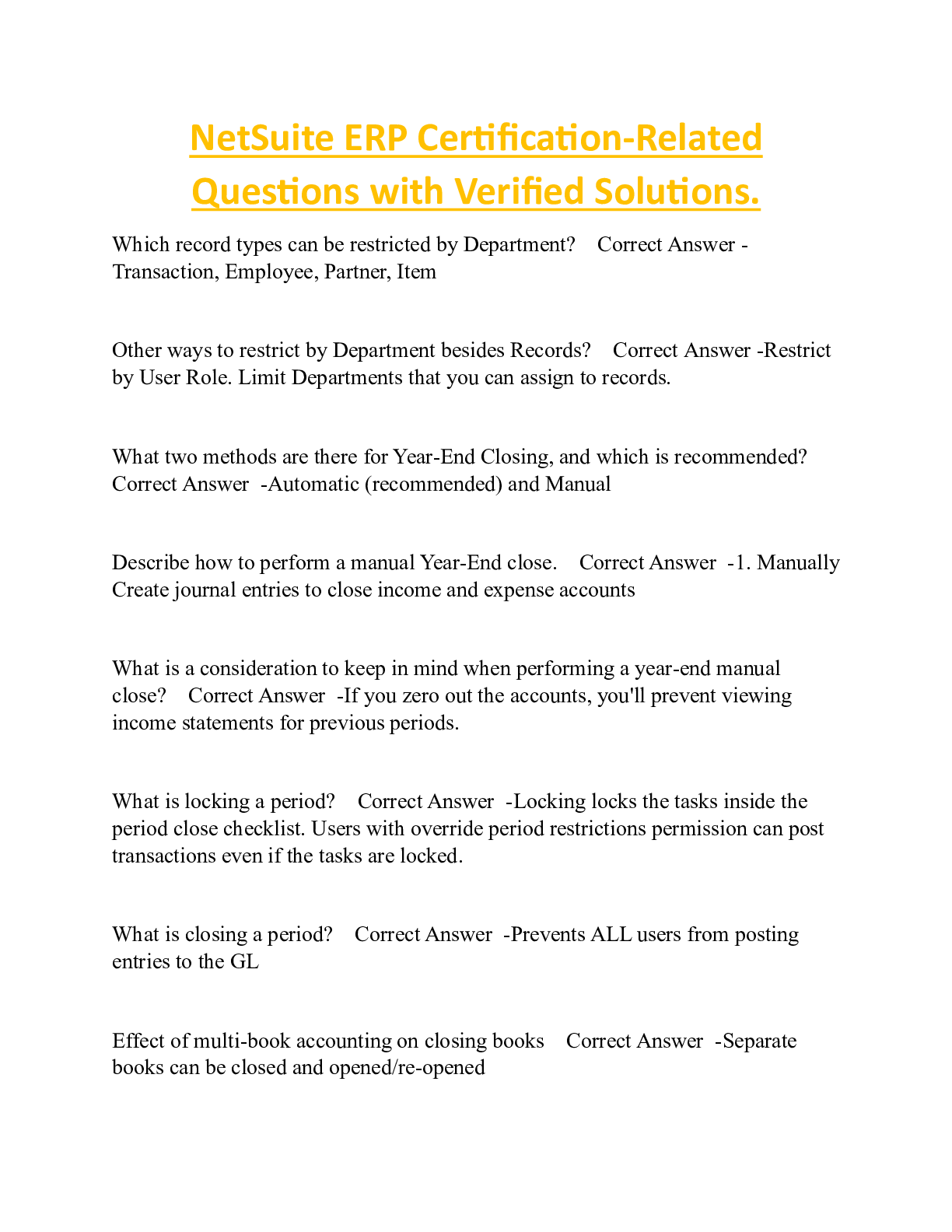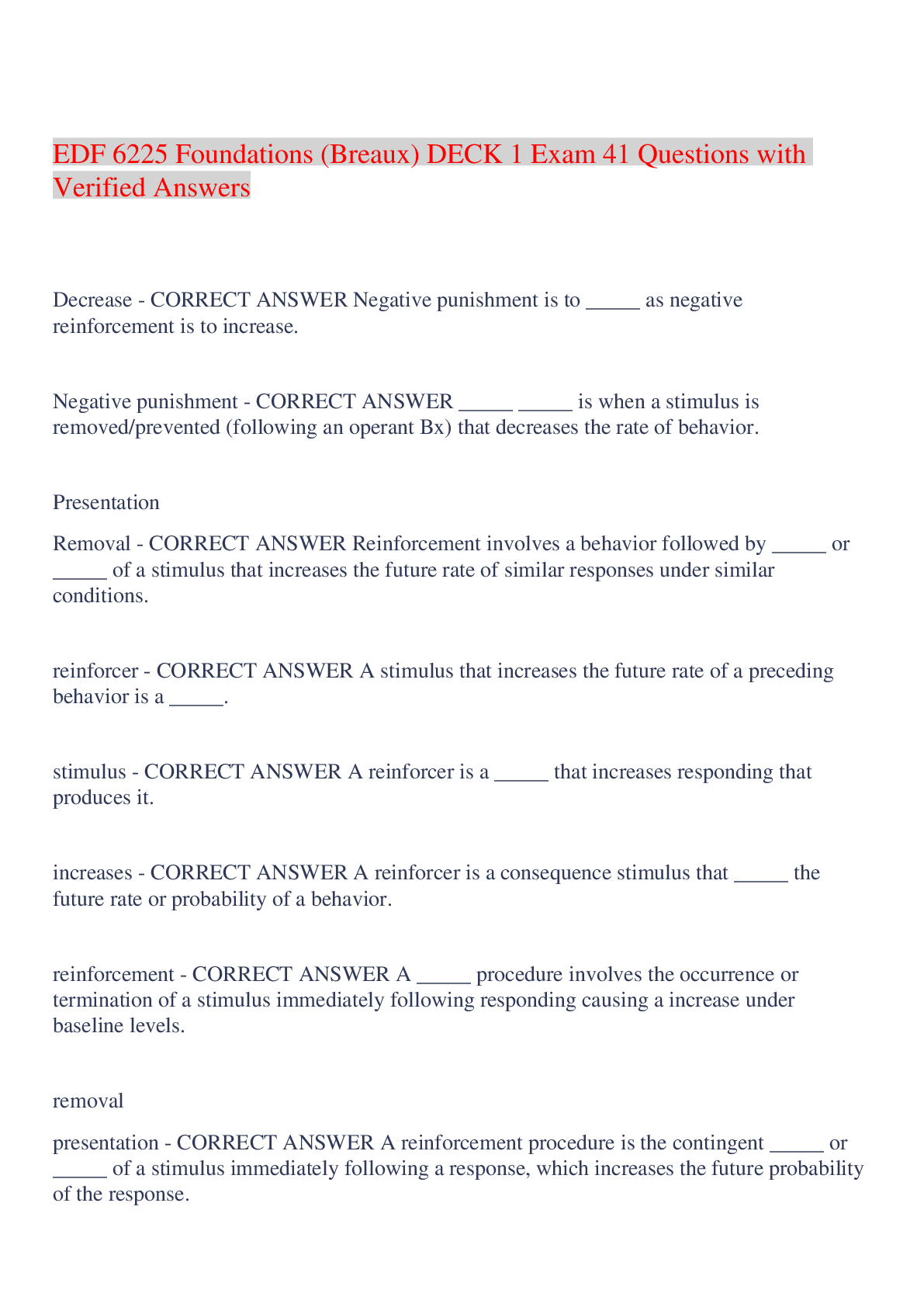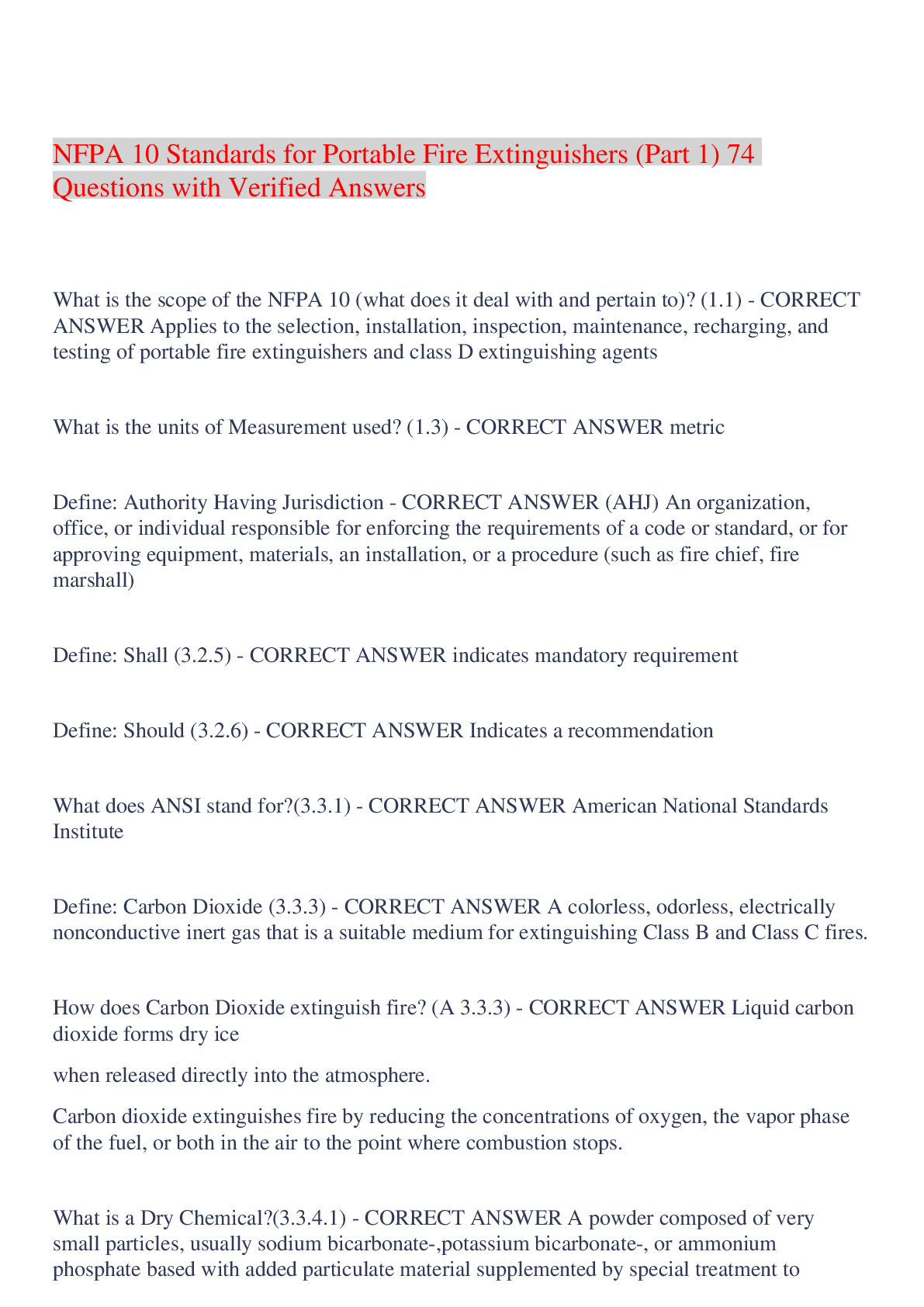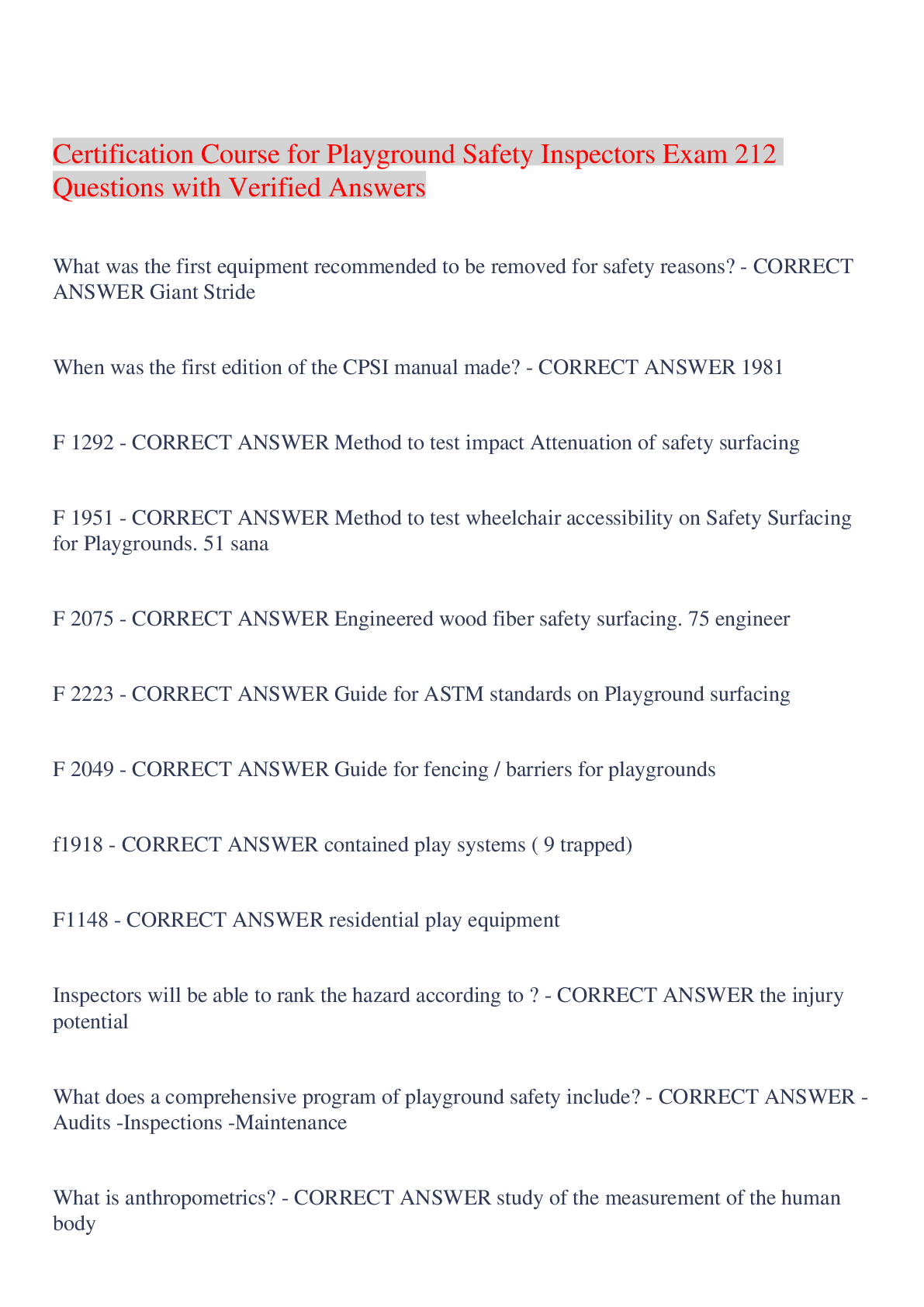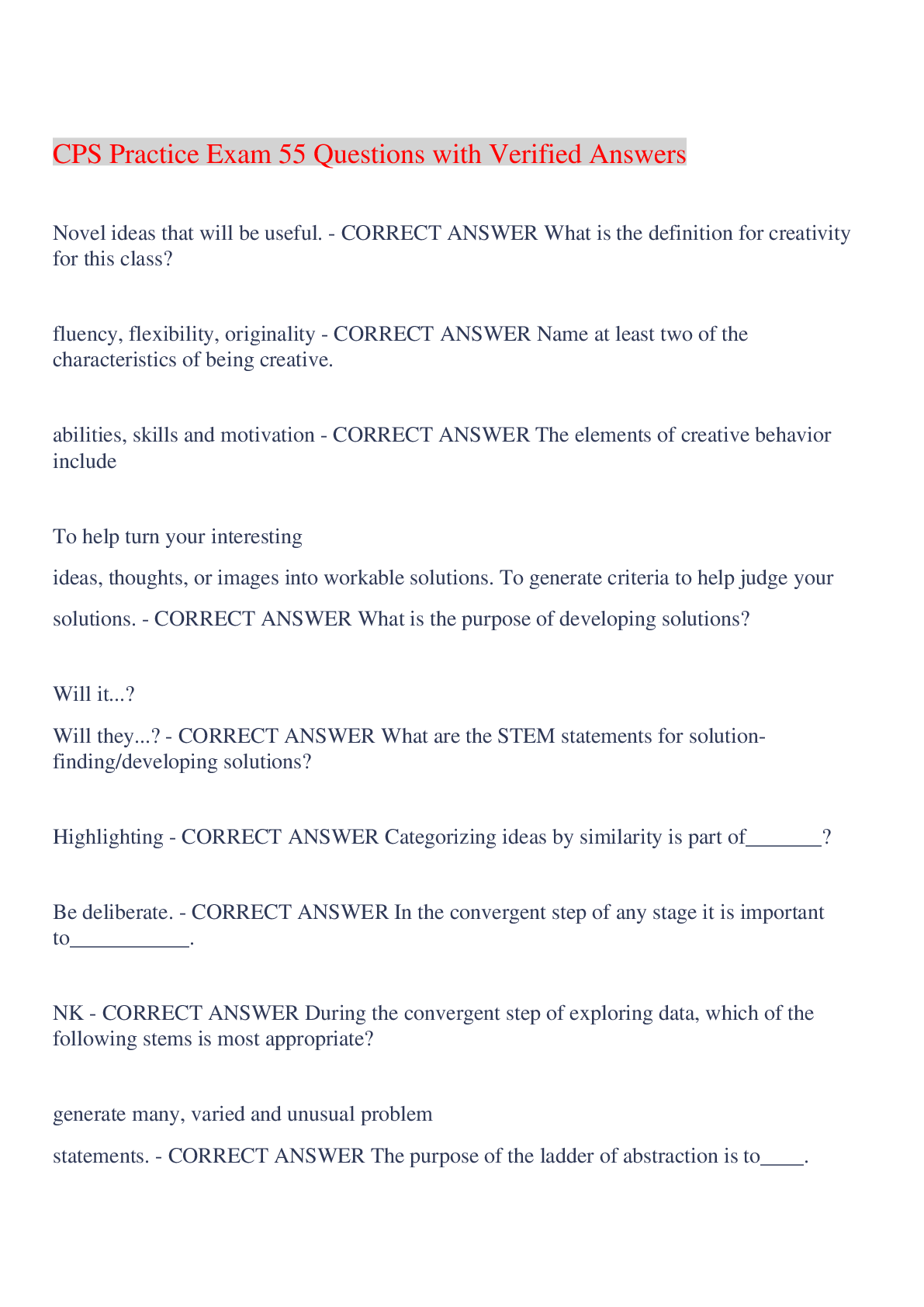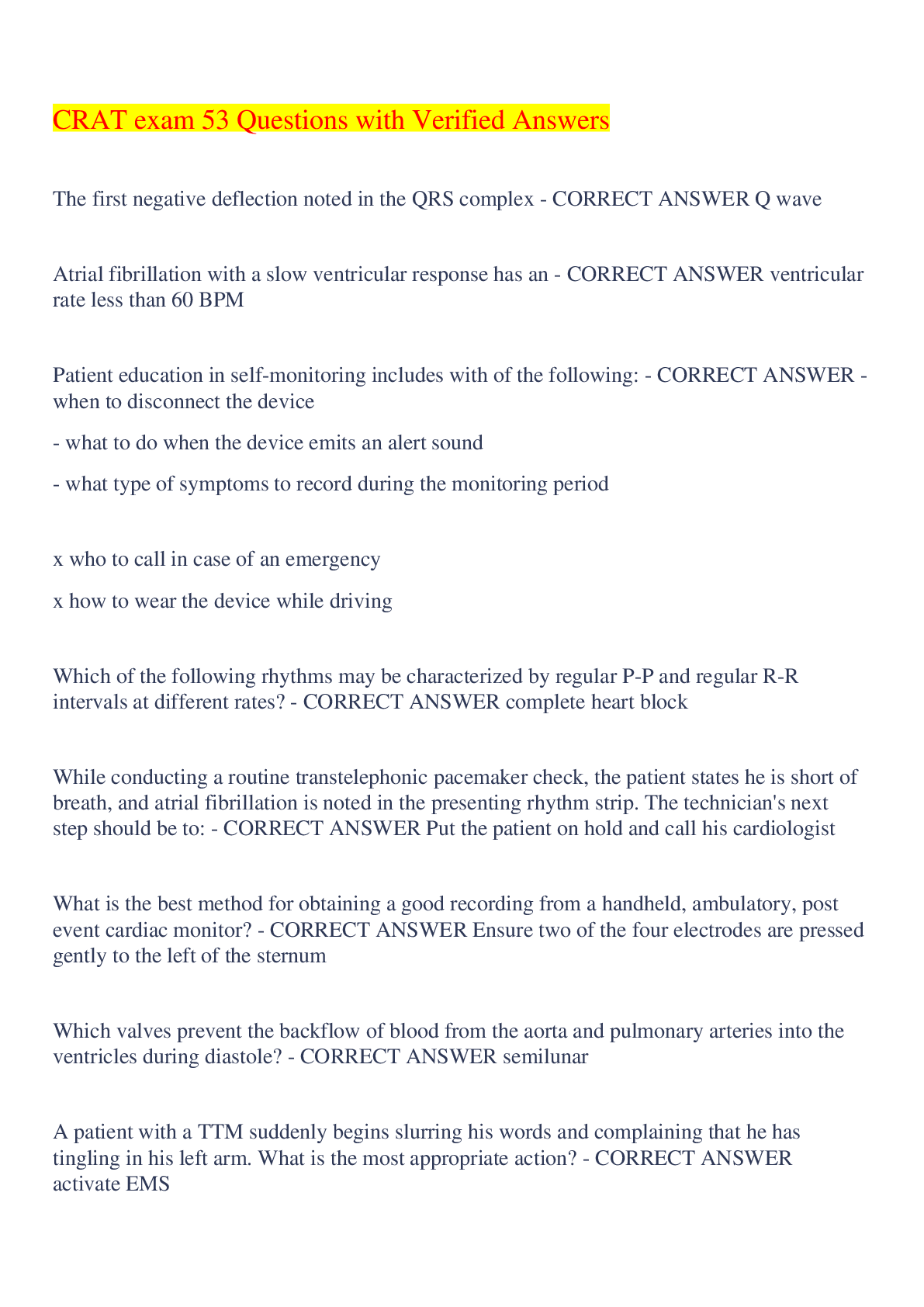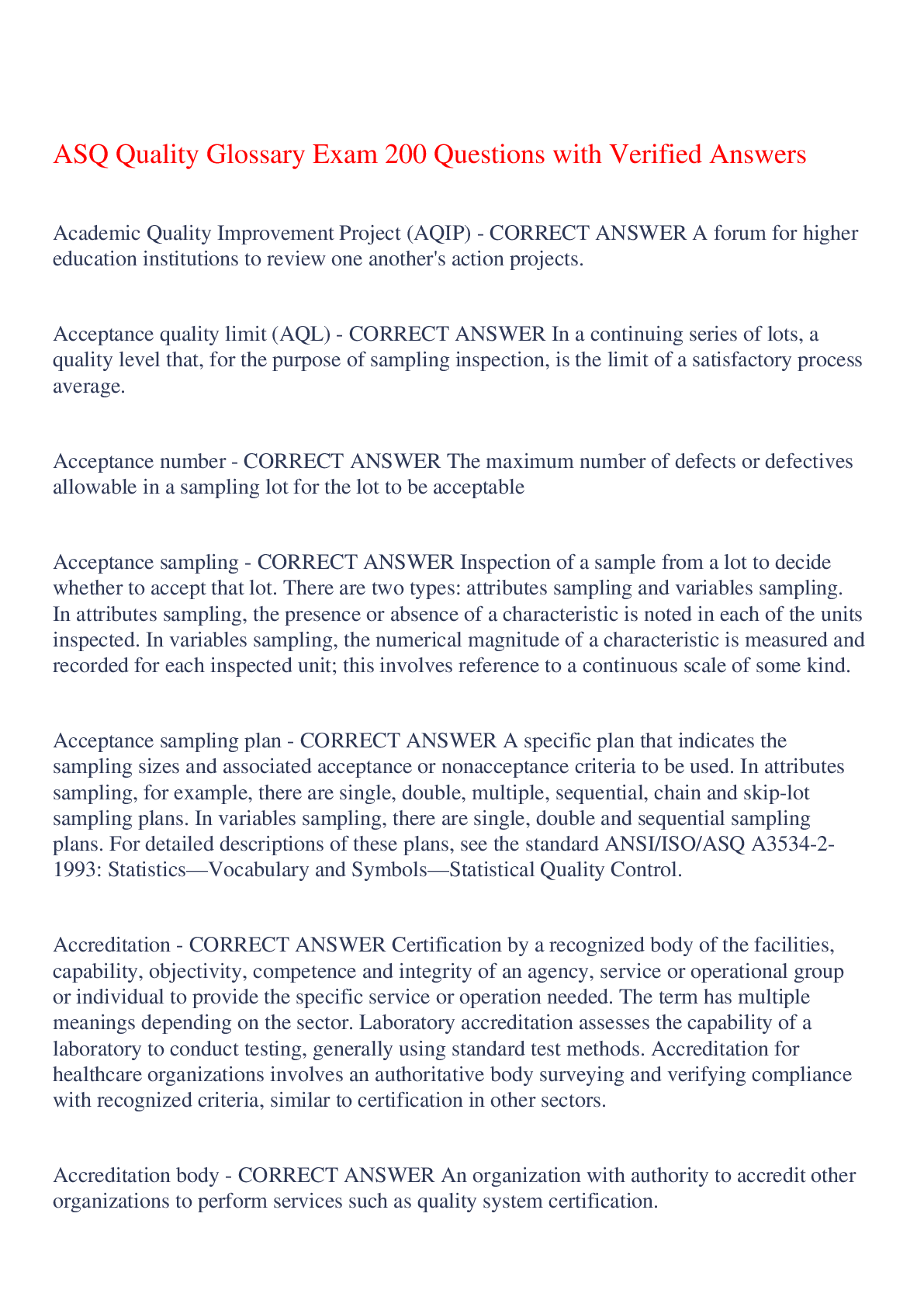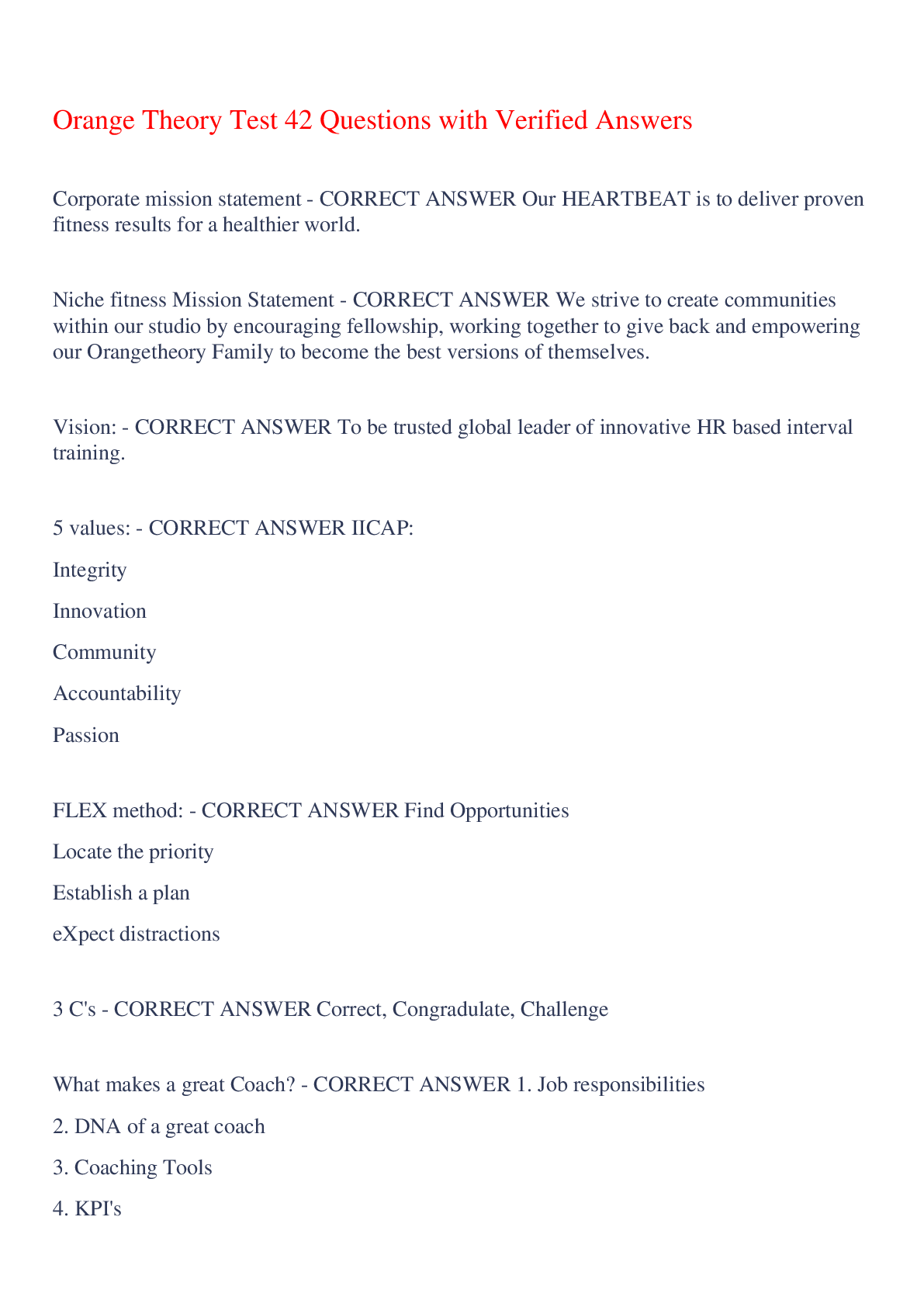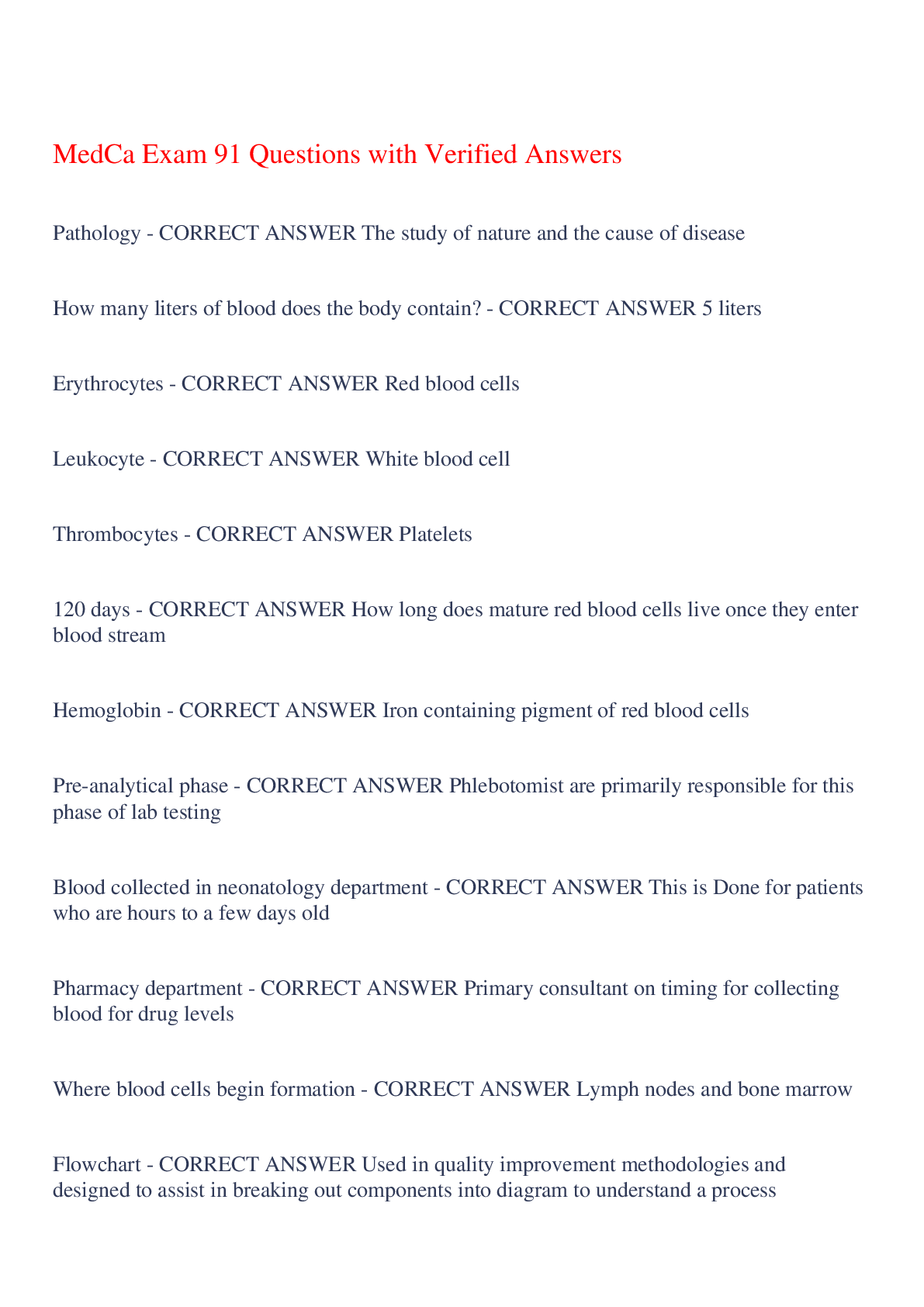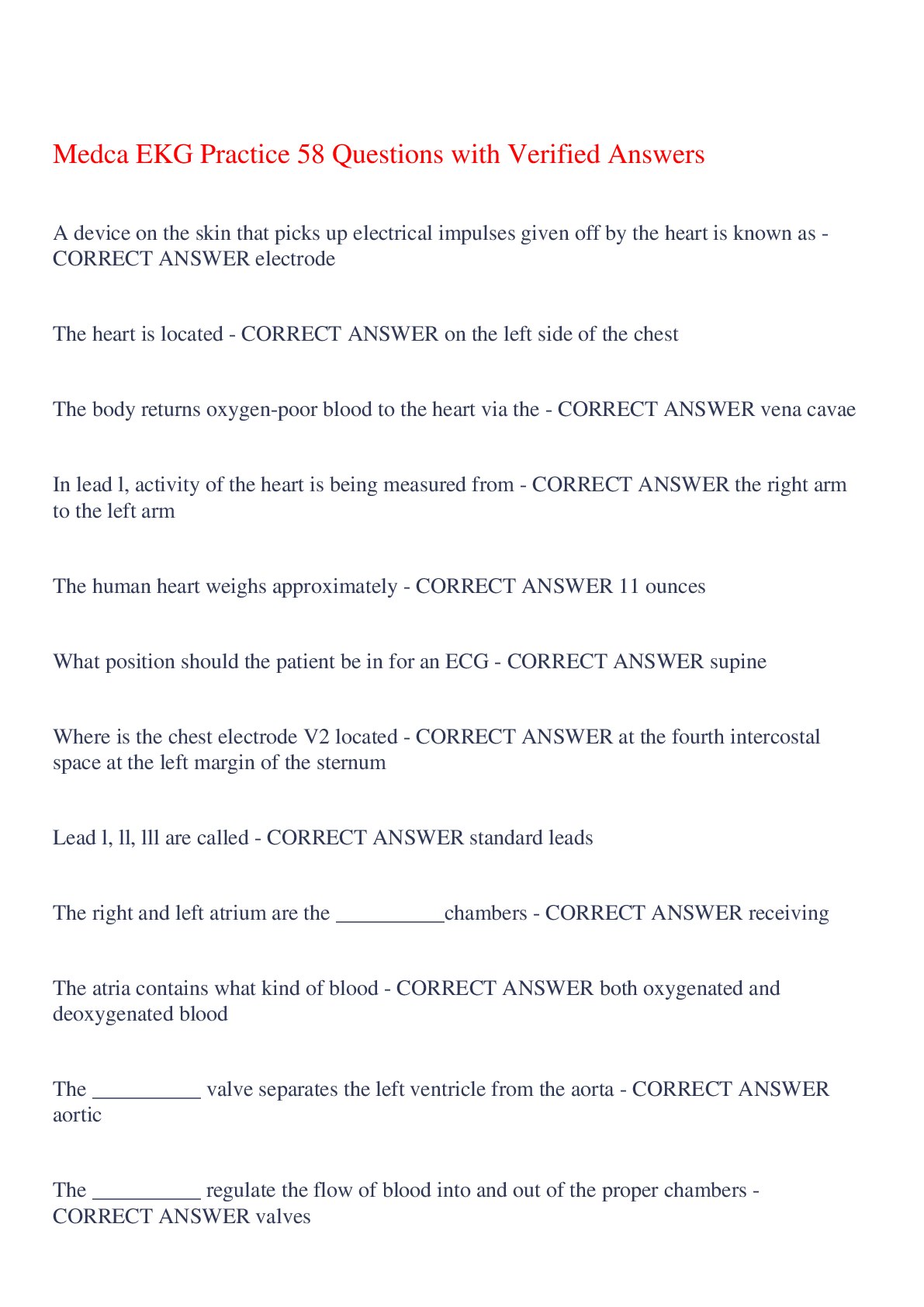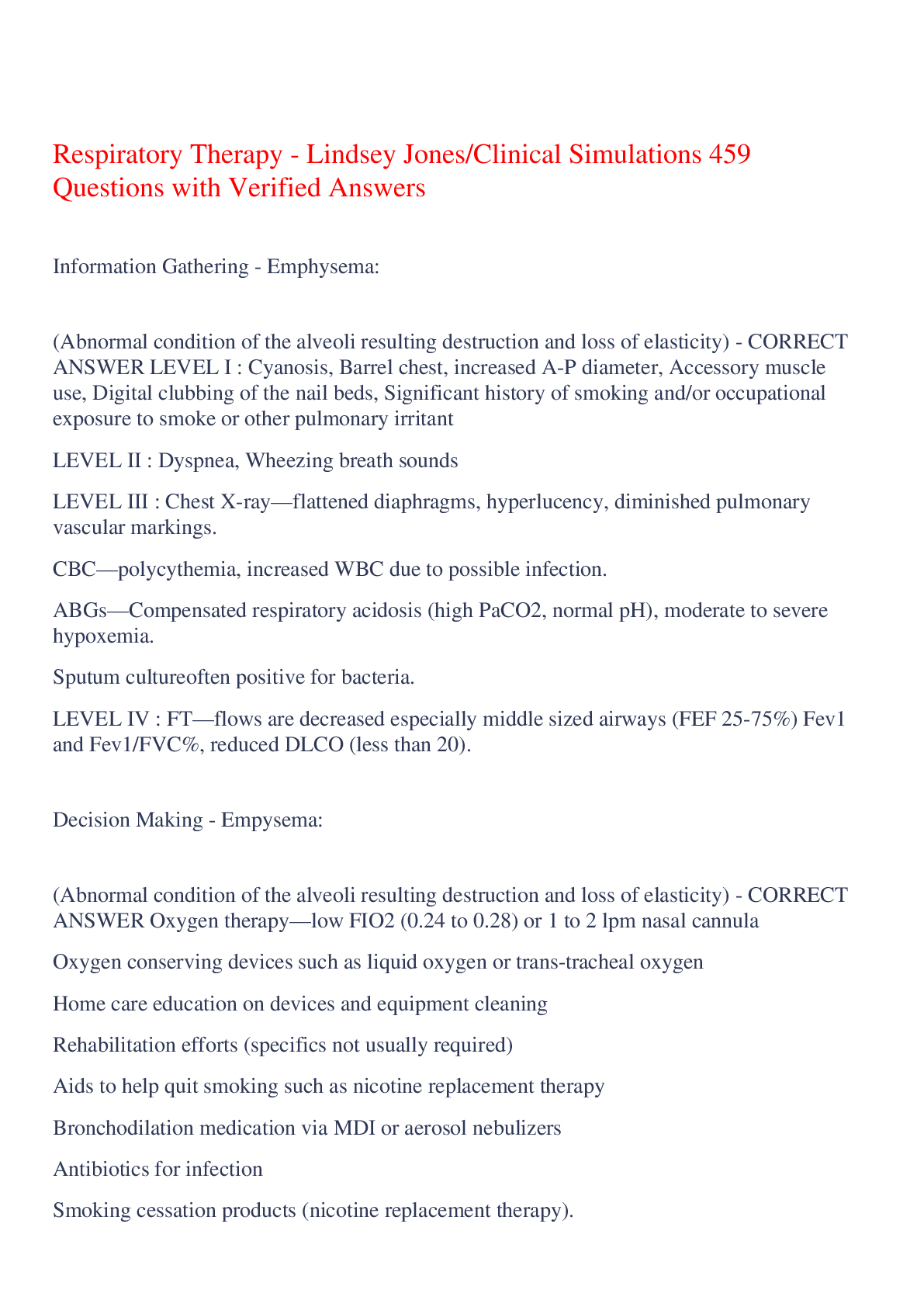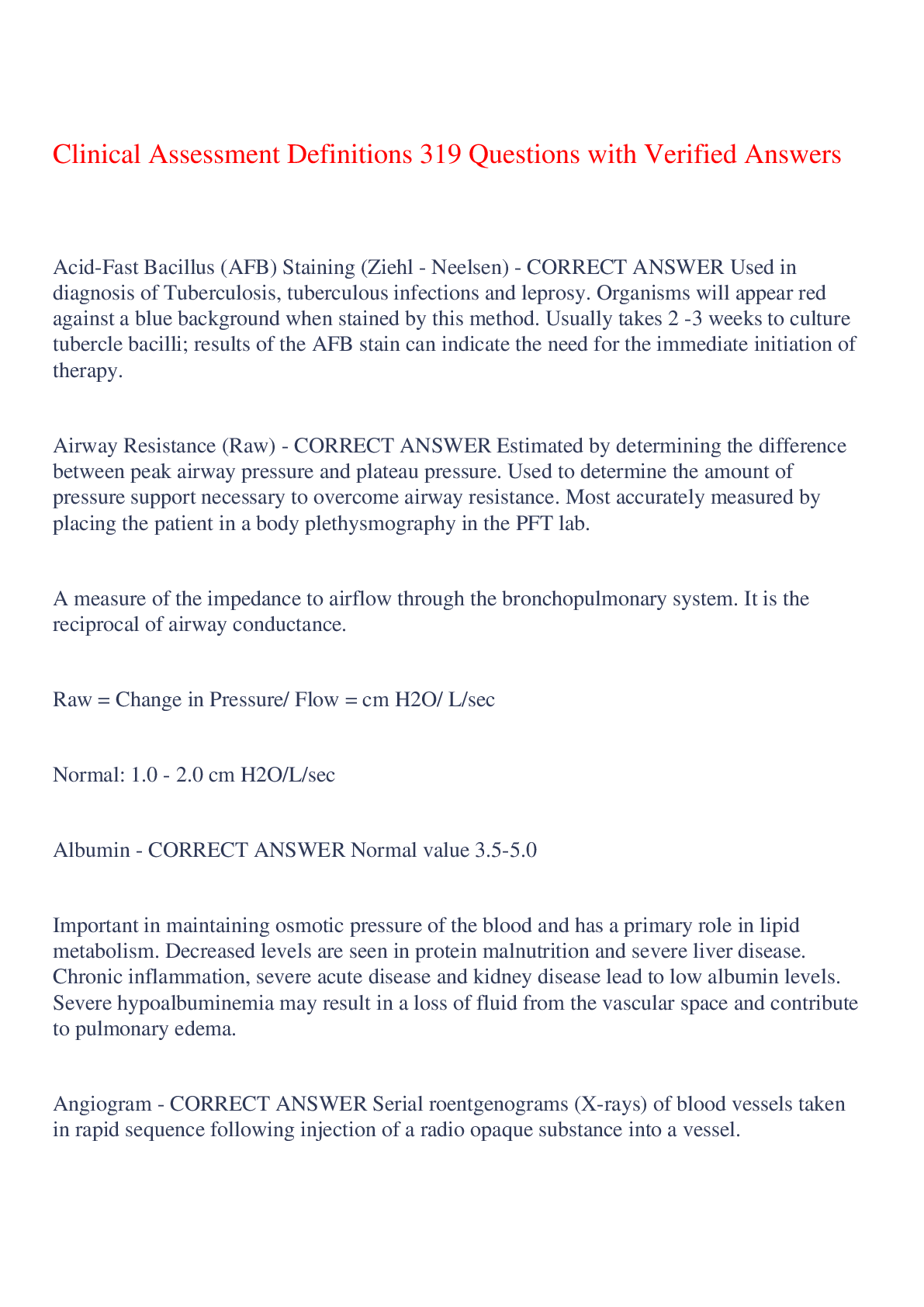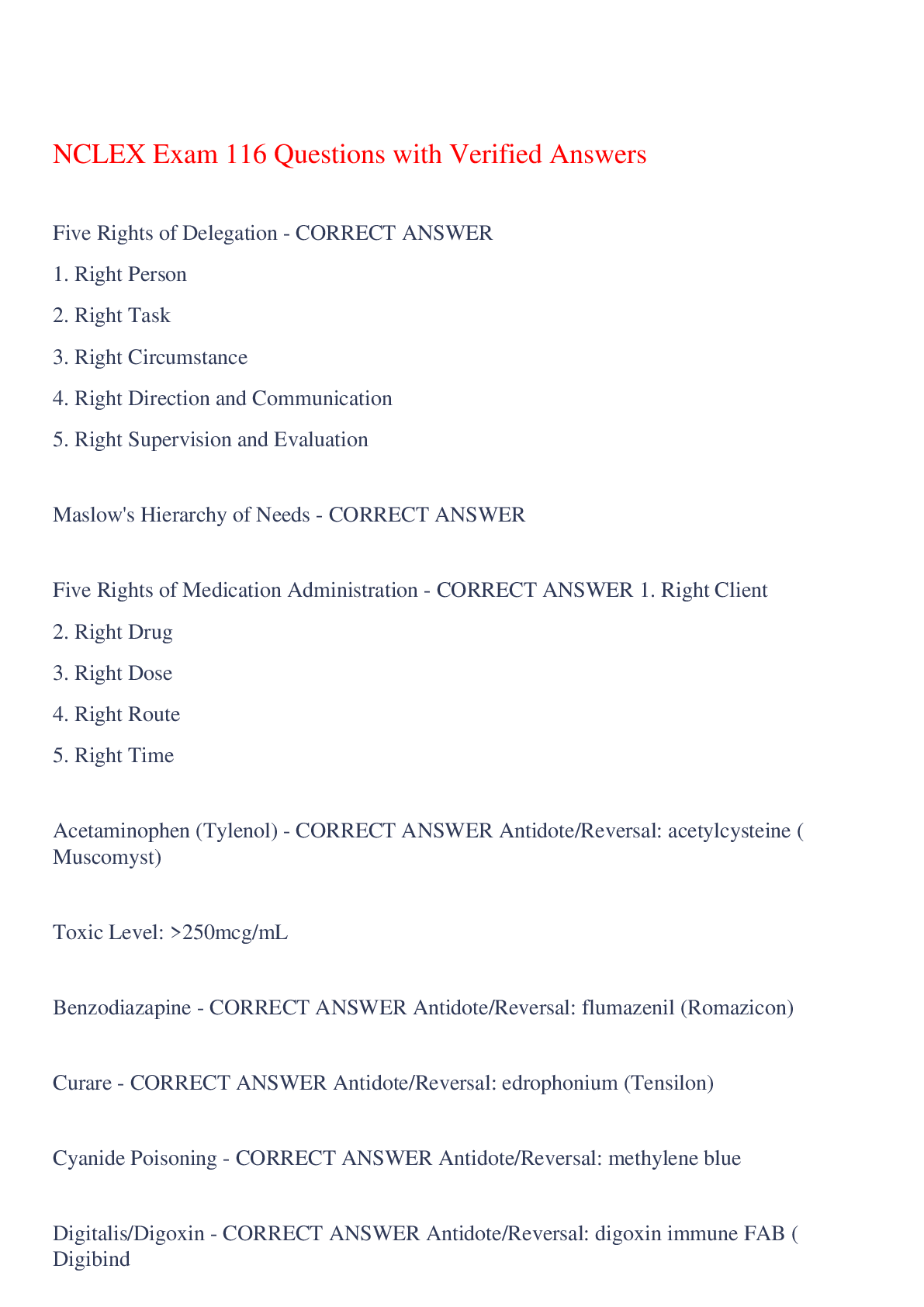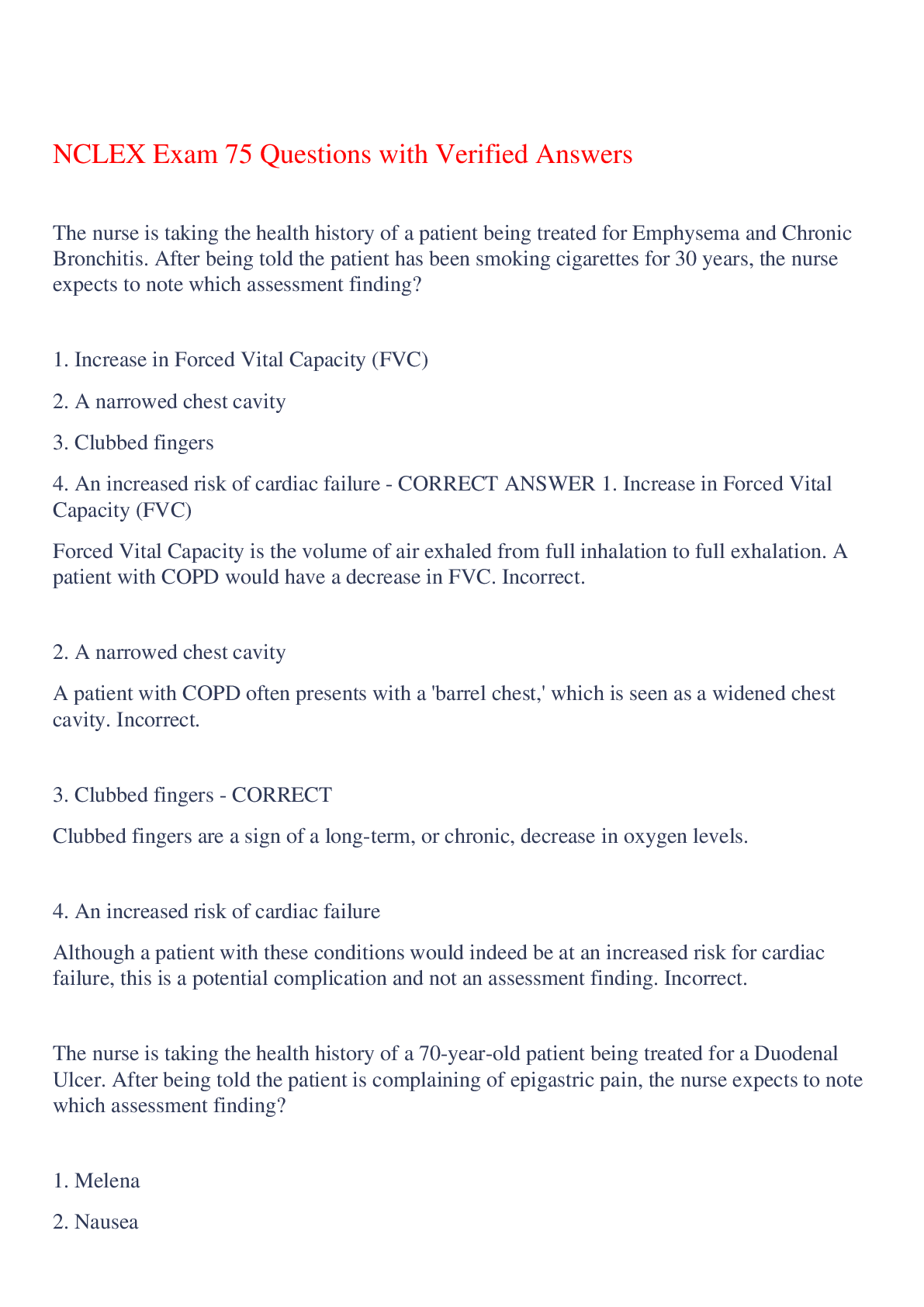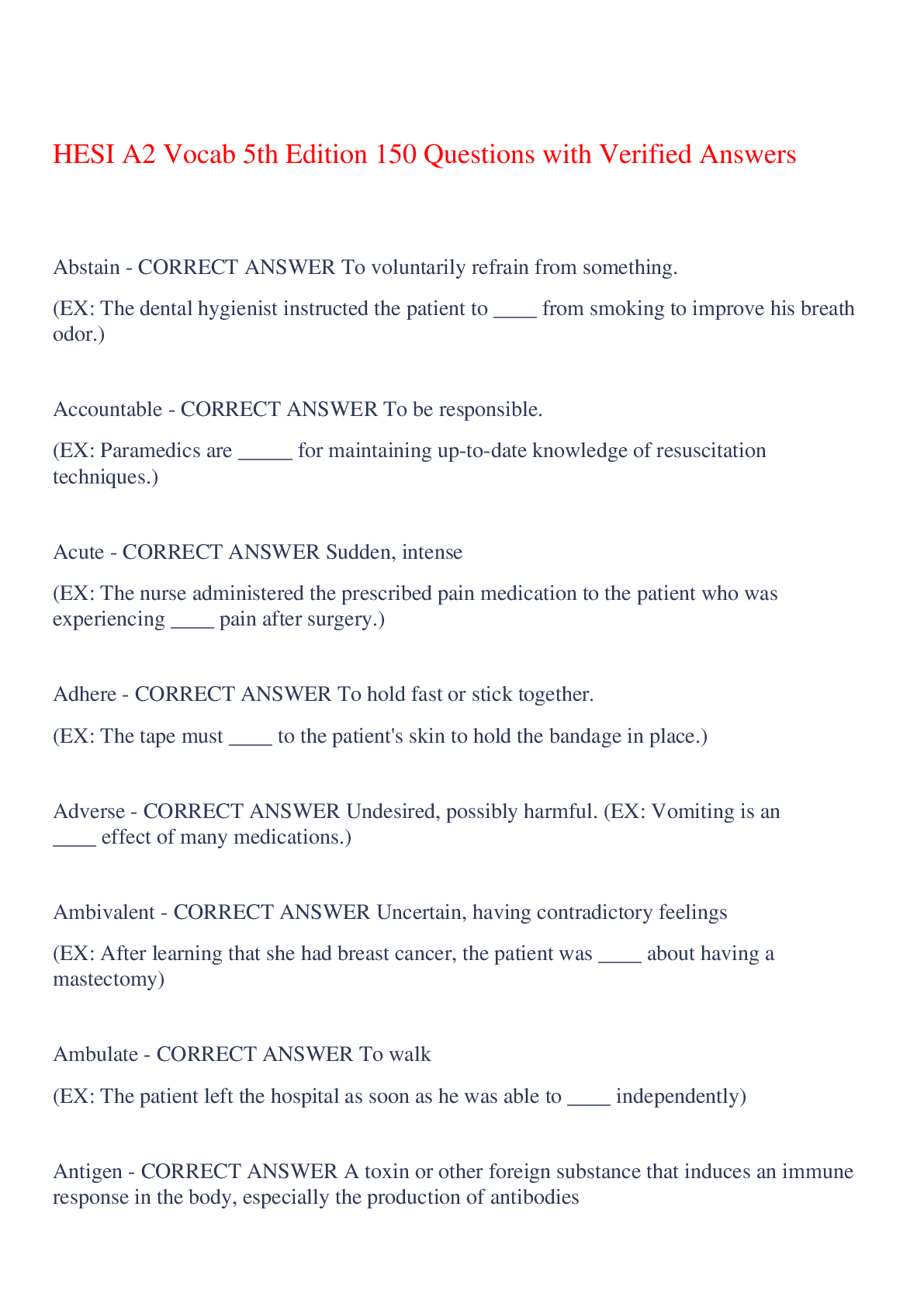Health Care > EXAM > Health Saving Accounts (HSAs) 32 Questions with Verified Answer,100% CORRECT (All)
Health Saving Accounts (HSAs) 32 Questions with Verified Answer,100% CORRECT
Document Content and Description Below
Health Saving Accounts (HSAs) 32 Questions with Verified Answer What is Health Saving Accounts - CORRECT ANSWER A Health Savings Account (HSA) is to pay or reimburse certain medical expenses you ... incur. You must be an eligible individual to qualify for an HSA. You set up an HSA with a trustee。e.g. bank What are the benefits os Health Saving Accounts - CORRECT ANSWER 1. You can claim a tax deduction for contributions you, or someone other than your employer, make to your HSA even if you don't itemize your deductions on Schedule A 2. Contributions made by your employer *may be excluded*from gross income. 3. The interest or other earnings on the assets in the account are tax free. 4. Distributions may be tax free if you pay qualified medical expenses. 5. HSA is portable while you change employer Who qualifies for HSAs - CORRECT ANSWER To be an eligible individual and qualify for an HSA, you must meet the following requirement 1. You are covered under a high deductible health plan (HDHP), described later, on the first day of the moth. 2. You have no other health coverage 3. You canot be enrolled in Medicare 4. You can't be claimed as a dependent on someone Under *the last-month rule*, you are considered to be an eligible individual for the entire year if you are an eligible individual on the first day of the last month of your tax year (December 1 for most taxpayers). Contributions to an HSA - CORRECT ANSWER 1. For employee HSA, both employees and employer can contribute 2. For self-employed, family member can contribute 3. Contributions to an HSA must be made in *cash*. Limit on Contributions - CORRECT ANSWER If you have self-only HDHP coverage, you can contribute up to $3,400. If you have family HDHP coverage, you can contribute up to $6,750. what do they do? - CORRECT ANSWER - designed to help people save for qualified health expenses that they or their family incurs contributions by employer - CORRECT ANSWER - not included in the individual's taxable income eligibility - CORRECT ANSWER - not covered by a high deductible plan - not covered by any other health insurance plan - not be eligible for Medicare contribution by individuals - CORRECT ANSWER - for taxpayers 55 and older....... additional contribution up to $1,000 uses of money in HSA - CORRECT ANSWER - for non health purposes..... taxed on it and additional 20% tax penalty - after age 65..... withdrawal for non health purposes will be taxed but NOT penalized Special Savings Plan - CORRECT ANSWER Replaced medical savings accounts in 2003 Combination of a savings account and a high deductible health plan Funds may be used the the individual, their spouse, and their dependents Deductibles are embedded or non-embedded Embedded Deductible - CORRECT ANSWER An HSA has 2 deductibles: an individual and a family deductible Individual deductible embedded into the family deductible, permitting each family member the opportunity for their policy to cover their medical bills before the total family deductible is met Non-embedded Deductible - CORRECT ANSWER Only has the family deductible The entire deductible must be met before the plan pays any benefits Deductible can be satisfied by one family member or by several Eligibility - CORRECT ANSWER -Cannot have other health insurance coverage (except disability income, long-term care, or limited coverage) -Cannot be eligible for Medicare -Cannot be dependent on another persons' tax return Contribution Limits - CORRECT ANSWER Minimum deductibles and contribution limits are indexed The maximum out-of-pocket spending (the maximum amount an individual must spend before catastrophic coverage begins to pay 100% of qualifying medical expenses) in an HSA is $6, 250 for a single individual and $12,500 for a family Tax Benefits - CORRECT ANSWER The employer and employee make contributions to the HSA Contributions are vested immediately Contributions are tax deductible for individuals and are made on a salary-reduction basis. employer-made contributions are not taxable income to the employee Funds can be used tax-free (no tax on principal or interest) for qualified health expenses If funds are used for a non-health purchase, a 20% penalty plus tax is assessed Funds rollover from year to year Withdrawals made after the age 65 are taxed but not penalized True or False: To be Eligible for a HSA members must: 1. (T/F) Be covered under a High Deductible Health Plan (HDHP) 2. (T/F) They can have secondary health coverage and be enrolled in Medicare 3. (T/F) Members can be claimed as a dependent on another person's tax return. 4. (T/F) Members MUST be working to contribute 5. (T/F) Members do NOT need earned income in order to contribute 6. (T/F) Individuals must be eligible for membership with SECU, LGFCU or NCPRESS but do not have to have a regular share account. - CORRECT ANSWER 1. True 2. False 3. False 4. False, Members can be working or not working to contribute 5. True 6. True Earnings grow tax-_____ - CORRECT ANSWER deferred Owners can claim a tax _____ for contributions ____ or _____ other than their ____ makes to an HSA even if they do not itemize tax deductions. - CORRECT ANSWER deduction, they, someone, employer Member's contributions can remain in the account year to year and they do not lose funds they do not use. (Don't use it? Don't lose it!) - CORRECT ANSWER Yes True or False: Members must deposit a minimum of $25 to open an HSA - CORRECT ANSWER False, there is no minimum deposit If eligible individuals have their HDHP for the entire tax year they can contribute up to 100% of their annual limit? - CORRECT ANSWER Yes Annual Limits for an HDHP: Single Coverage (2014) = Family Coverage (2014) = Age 55-64 Catch Up Limit (2014) = - CORRECT ANSWER $3,300 $6,550 $1,000 Distributions are tax _____ if used for _____ medical expenses for the member, their _____ or their _____. - CORRECT ANSWER free, qualified, spouse, dependents True or False: Owners can use the funds in their HSA to pay for qualified medical expenses that were incurred before they established the HSA. - CORRECT ANSWER False, only expenses incurred after the HSA was established Are Visa Debit Cards issued for an HSA? - CORRECT ANSWER Yes True or False: The member may add the HSA account to his/her traditional debit card? - CORRECT ANSWER True True or False: The member may add other accounts to his/her HSA Visa Debit Card. - CORRECT ANSWER False Members can simply close their HSA by simply completing a share withdrawal ticket. Under what circumstances would a member need to fill out an IRA/HSA/CESA Withdrawal Request? - CORRECT ANSWER Yes - The account needs to be closed due to excess contributions - The account owner is disabled - The account owner has died A _____ penalty of withdrawn earnings applies when funds are not used for qualified medical expenses. - CORRECT ANSWER 20% The 20% penalty does not apply when the owner is _____, age _____ or older, or _____. - CORRECT ANSWER disabled, 65, deceased What is the account code type for an HSA? - CORRECT ANSWER 350 [Show More]
Last updated: 8 months ago
Preview 1 out of 6 pages
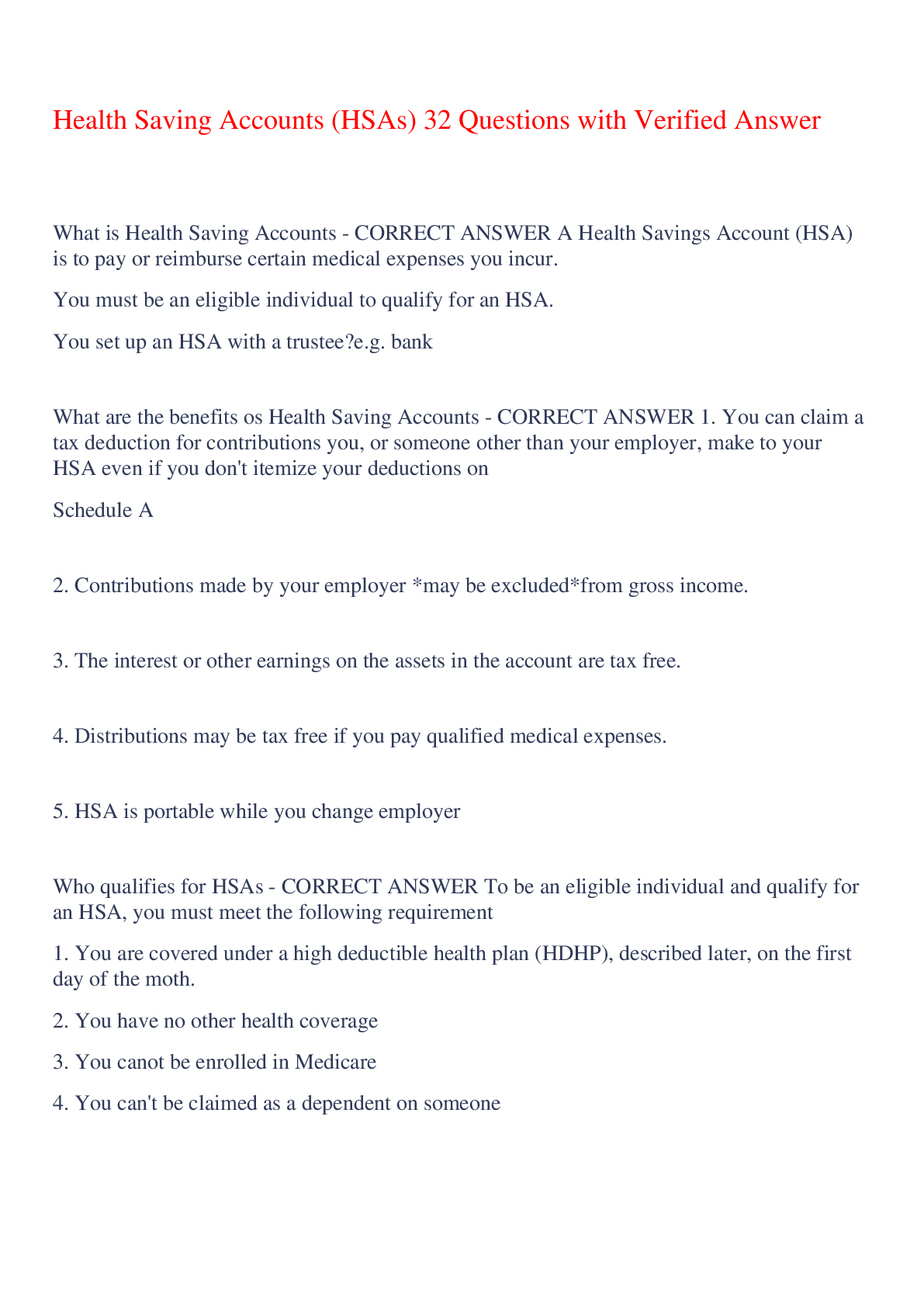
Reviews( 0 )
Document information
Connected school, study & course
About the document
Uploaded On
Aug 27, 2023
Number of pages
6
Written in
Additional information
This document has been written for:
Uploaded
Aug 27, 2023
Downloads
0
Views
55

